opens in a new window opens in a new window
opens in a new window opens in a new window
opens in a new window opens in a new window
opens in a new window opens in a new window
opens in a new window
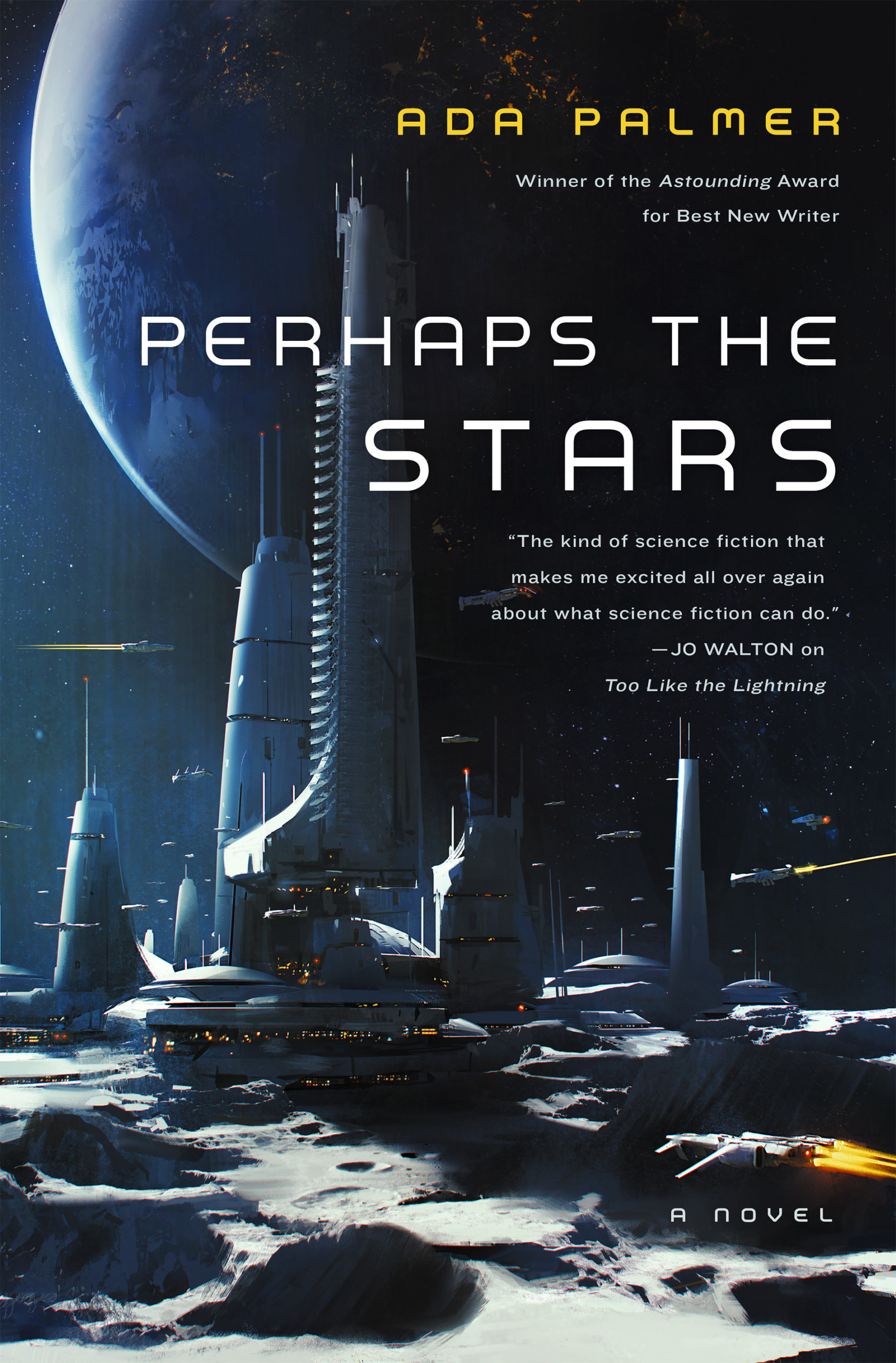 World Peace turns into global civil war.
World Peace turns into global civil war.
In the future, the leaders of Hive nations—nations without fixed location—clandestinely committed nefarious deeds in order to maintain an outward semblance of utopian stability. But the facade could only last so long. The comforts of effortless global travel and worldwide abundance may have tempered humanity’s darkest inclinations, but conflict remains deeply rooted in the human psyche. All it needed was a catalyst, in form of special little boy to ignite half a millennium of repressed chaos.
Now, war spreads throughout the globe, splintering old alliances and awakening sleeping enmities. All transportation systems are in ruins, causing the tyranny of distance to fracture a long-united Earth and threaten to obliterate everything the Hive system built.
With the arch-criminal Mycroft nowhere to be found, his successor, Ninth Anonymous, must not only chronicle the discord of war, but attempt to restore order in a world spiraling closer to irreparable ruin.
The fate of a broken society hangs in the balance. Is the key to salvation to remain Earth-bound or, perhaps, to start anew throughout the far reaches of the stars?
Please enjoy this excerpt of opens in a new windowPerhaps the Stars by Ada Palmer, on sale 10/19/2021.
Chapter the FIRST
World Civil War
Written Sept. 15, 2454
Romanova
It has to be a short war. We all keep saying it. The Utopians bought us six months before real Hell sets in, six months no one has nukes, or supergerms, or CNCs, or their many equally apocalyptic cousins lumped under the title ‘harbingers’. For these six months we can’t destroy the world. They sacrificed their immortality for that, the aloof neutrality that used to guard Utopia, the only Hive neither complicit in nor injured by the multi-century assassination system called O.S. No, it was stronger than that: the aloof neutrality of literal worldly detachment. Six Hive capitals are on this planet, but theirs on the serene, chill Moon. They could have watched in peace. Even if Luna City can’t hold them all, the others could have hidden in Earth’s empty, inhospitable corners, where their space tech would let them alone survive. Perhaps it’s fantasy to think that even they have that much tech, but it isn’t fantasy to say that they alone were sure that some—enough—of them would have survived to make the better world that’s supposed to rise from our ashes. Now no one knows if war will spare any of the small and alien minority that struck first, during the pre-Olympic truce, and so made itself an even easier scapegoat than O.S. Apollo was willing to destroy this world to save a better one, but not so the Utopian majority who voted to risk the Great Project itself to peacebond our harbingers for six months. So it has to be a short war, short enough to use that sacrifice, to end before the sticks and swords and triggers in our hands evolve again into the Big Red Button.
Yet how can it be over in six months? This is World Civil War: every city, every street divided, with no sovereign soil to retreat to, no ‘my side’ and ‘your side’ to form a truce around. If history proves anything of World Wars, or of Civil Wars, it’s that their broad, complex vendettas are protracted. The Church War took fifteen years to scour the Nation-States from Earth with fire and blood, and while fractious historians may debate whether the First World War ended in 1945 or 1989, it was long enough to make Orwell envision how deadlocked dystopias might actually achieve Eternal War. I look back further: the Wars of the Roses, China’s Warring States, the Hundred Years’ War, endless revolutions sparked by 1789; even Athens facing Sparta counted the war in decades, not in months. Optimism says I simply haven’t heard of history’s littler wars, but this war will not be little. Common sense, and Su-Hyeon’s bloodless face when they come from the Censor’s office daily, are all the oracles I need.
Mycroft would have made all this seem smaller. Or bigger. Both. They would have given this the smallness of warring ants, of pieces on a chess board, puppets acting out a script, while the bigness lies in the Authors, Providence, the Great Conversation Mycroft believed in with such precious certainty. I don’t quite have that. I believe most of the time; there was a zeal in Mycroft, an astute and persuasive intelligence that, together on our bunk beds in clandestine hours taught me to believe. But doubt still shakes me. I’ve eaten Bridger’s feasts, smelled the brain-blood at the Prince’s resurrection, seen Achilles throw a javelin, but I’ve also tasted Moondust, seen rainbow dragons take flight from the stunned and mourning Forum, and, with nothing but human limbs to launch them, I’ve seen Mycroft fly. Humans have done things I thought impossible without Bridger. When sleep is slow in coming, my skeptical imagination keeps weaving alternatives to explain away the miracles and Plan and Interference which would make my past self call my current self crazy. Achilles, Boo, Patroclus Aimer, what if they’re all U-beasts? What if it’s all just us?
One thing I’m always sure of, though: it’s my doubt that’s crazy, not my belief. It’s paranoia’s doubt, like when you meet some impossibly amazing person, who, against all hope, seems to accept you as a bosom friend, and they give you smiles, hours, years, but you know the rot and failure inside yourself and can’t believe those smiles, that person’s smiles, can really be for you. In just that way, I can’t believe this war is nobler than it seems. That we are nobler. I blame us, blame Tully Mardi, Perry-Kraye, Joyce Faust, myself, imagine us the authors of our own bumbling calamity. Something stubborn in the blackest waters of my mind refuses to accept that we deserve to be more. But we are more. I know it. We are the instruments that carve the path from cave walls to the stars. We are what built this world and will build better ones. We are the message which ended the literal infinity of loneliness which so long held so Good and True and Real a Being as That Which Visits Through the Flesh We Named Jehovah Mason. It used to be easier to see it. With Mycroft as interpreter, I used to find greatness in every human syllable, but, without Mycroft, now logic, evidence, experience, none of these can pierce doubt’s dark hours anymore. Only one thing can: They Love us. That’s what I cling to. A Kinder, Better Being than Our Maker has reached across the blind black from another Universe to Love us with Their infinity of Love. When I believe that, I can still see us among the stars.
Chapter the SECOND
The Battle of Cielo De Pájaros
Written September 15–17, 2454
Events of September 7th
Romanova
I wasn’t going to bother describing my experience of the war’s second day, since it was all muddle, but I’ve realized muddle was the authentic first assault—not of proper factions, not Remakers on Hiveguard, tenants on Mitsubishi landlords, wronged Hives on those complicit in O.S., or Nurturist bigots on whoever they’re calling ‘set-sets’ these days—no, it was a raw assault of chaos on order, of war on Earth. It began within hours after the Olympic Closing Ceremony, but there was no reality for me then, not outside the shock of the Atlantis Strike, and what it claimed. Who it claimed. In the black hours of the morning, grief had given way to sleep, but sleep in turn gave way to the Prince’s voice in the tracker at my ear: “Humanity needs Anonymous advice.”
Jehovah Mason’s light, dead voice makes me instinctively snap to, not out of obligation, but because every word I’ve ever heard Them say has been true and important. They’re not just well-reasoned words like Vivien’s, or right-minded like Bryar’s, but uncomplex, clean-cutting truth, like two plus two is four, like the same thing cannot both be and not be at the same time, like suffering is bad. If They said humanity needed something, They meant all of humanity, from Cro-Magnon to Mars. I fired up my lenses before I even registered the difference between sleep and waking.
The feed brought my eyes at once to Chile. It was daylight there, and lines of violet, coral-pink, and charcoal soared up like airy streamers from the glittering glass roofs of Cielo de Pájaros: smoke. A different feed showed the fires, and people, random clips: in one, two Humanists in Gold Team jackets hurled things which burst into strangely monochrome orange flame; in another, a cluster of people huddled in one of the flower trenches between the rows of flashing glass roofs; elsewhere, guards fired stun guns. Some of those in defensive clusters wore blue Romanovan Alliance police uniforms, and others were in Cousin wraps, presumably inspectors, there to prevent the abuse of the SaneerWeeksbooth bash’house and computers while they were in Alliance hands. But some Cousins were helping the attacking Humanists, which made no sense until I found a feed whose software highlighted the Hiveguard sigil—Sniper’s bull’seyes—on the breasts of all of the aggressors. Hiveguard was trying to take control of the cars. They could not advance across the surface, since the Spectacle City’s terraced rows made every flower trench a fortress, and every raised path a no man’s land. Instead the attackers burrowed up the slope, entering houses by basement doors like Thisbe’s, and advancing from trench to trench one household at a time. I looked for signs of resistance from the residents, broken doors, singed grasses, but the Hiveguard aggressors seemed to meet no hostility from the residents—no surprise when Cielo de Pájaros was 71 percent Humanist.
A flash, and all at once the image jolted, people cowered, covering their heads, and the glassy roofs around them shattered and flew like dust dispersed by breath. There was something in the sky, shrapnel and spider smoke strings raining down, while upward—upward was a column of cloud-smoke-chaos like a volcano’s eruption with no volcano, if you could imagine Vesuvius concealed by Griffincloth so all you see is the smoke and fire rising toward the clouds. Cars streaked through the black cloud-cone, smearing and striping it as a spoon stripes the frothy top of cappuccino, and as the footage tilted up I saw the top of the cone was rising, pillowy and round, and I thought the word ‘mushroom’ and felt like an idiot: a car crash. You read about the onboard reactors, how even cities don’t devour power like the engines that hurtle us a city-width in seconds, but you can’t let yourself think about it, antimatter live and close—if you think about it you could never ride a car again. The safety system directed the explosion upward, more power than all the sunshine that hits and feeds the surface of the Earth released in one spot, but upward, sparing the city with a merciful forethought that made engineers feel more like gods than ever. There was some downward shockwave, and a spot of black on the ground, burned roof and vaporized car indistinguishable, ash stirred by deadly blurs of more cars streaking the sky, too dense, too close, swarming like locusts, combing the smoke with their paths. There was a swarm of cars swirling in a shell over the city, and I understood now why we could not just flood Cielo de Pájaros with peacekeepers to protect the system all Earth needed. Had that crash been accidental? Two cars sweeping too close to each other? Or a calculated warning from whoever was controlling them? Or had a brave someone tried to force a car to land and help defend this heart which pumps the transit bloodstream of our sprawling world? The cameras turned downward again, showing fresh gunfire, advances through the wildflower trenches, closer to the vital central bash’house, and I understood why Earth needed its Anonymous. A conference call had waited blinking in the corner of my lenses, and I joined it.
« Maître! » That word I understood, but not the rush of savage French that followed it. I had not called up video, but, even without a face to match, the grating wildness in Dominic’s voice carried a passion beyond fear. Begging?
“Do not get in a car, Dominic! You hear me? Do not get in a car!” This shout was Martin’s, punctuated by emphatic panting.
“Presume not to command thy prior!” Dominic’s English was more savage than their French.
“You won’t reach ad Dominum nostrum if you die, crash, or vanish!” Latin leaked out in Martin’s frenzy. “We’ve no idea who’s controlling the disappearances. We’ve no idea when every car on Earth might crash!”
Using French to exile Martin from the conversation is a traditional Dominic tactic. While they addressed the silent Prince, I skimmed what instahistory the news offered. The cars had rebelled, that’s how people described it, as if they were an ally that betrayed us. People had been getting into them as usual, taking off, but some never landed again. There had been no crash reports, no streaks of smoke, just certain people’s tracker signals went quiet in transit, and that was the last we heard of them. The first disappearances had been reported within two hours of the Olympic Closing Ceremony, but in the confusion after the Atlantis Strike, it took more hours for the word to spread. In those hours, thousands of Humanists had vanished mid-transit, possibly tens of thousands, and possibly not just Humanists. Vivien (whom I must get used to hearing called Humanist President Ancelet) had demanded that the Alliance forces holding the Saneer-Weeksbooth computers admit Humanist police to investigate what was happening to the transit system. Some Alliance spokesperson had refused and, worse, accused the new President of faking the disappearances as a pretext to seize the transit computers, and, worst, done so in savage, Hiveist language. Lesley Saneer had called for violence, and Cielo de Pájaros obeyed.
« Non. » Jehovah Mason’s calm made me feel better for the moment before I remembered They sound calm even with the world on fire. « Je te l’interdis. » (Context let me guess that one: “I forbid you.”)
« Maître! » Dominic’s voice cracked.
“Think, Dominic!” Martin pleaded. “We have no idea what enemy may control the cars now. The Hiveguard mob’s three trenches from the house, and they’ve advanced four in the last twenty minutes!”
“They seem to have a plan,” I said, my voice cracking as it broke through a film of sleep gunk. Six months ago I couldn’t have spotted pattern in the clumps of skirmish on the video, but Achilles put us Myrmidons through enough mock battles that something in my gut now knows the difference between planned and unplanned chaos. “Obvious it was going to get hit first, I guess. If I lived near Cielo de Pájaros, I’d have made a plan.”
“Exactly!” Martin cried. “The cars are controlled by an unknown enemy now, and a known enemy will have them in twenty minutes, and that’s if they don’t bring the whole system down. You have to face this, Dominic. Tōgenkyō’s an hour from Alexandria. Get in a car now and it may take you to the middle of the ocean, to capture, or to death, but it will not bring you ad Dominum, not in time!”
“An hour from Alexandria,” the Prince repeated in Their light but lifeless voice. “Untrue.”
Martin: “You’re on an island. You can take a boat.”
“A boat? Three weeks!” Dominic pronounced it like a curse.
The Prince again: “Three weeks. An hour. No. Distance divorces time now. They had been so long conjoined, these enemies; no more. Thou art not two hours from Me, My Dominic, nor two days, nor two weeks. Thou art half a world from Me; We know no longer what that means measured in time.”
I doubt the sounds that broke from Dominic were language, but it might have been some broken, whimpered French.
I fired up the Hâte Anonyme. I’m less comfortable than Vivien using this instant feed. I still think too much like an editor to feel anything but terror as billions watch my thoughts (and typos) appear character by character even as I write. But if any minutes in my tenure as Anonymous justified haste, these did:
<If you are more than 20 minutes’ flight from where you want to spend the war, relax.> (By this point 11 million had cued up my feed) <You have no choice to make today.> (81 million.) <You can’t reach that destination before the cars fail, even if you try.> (303 million.) <Think instead about what friends, what shelter, and what helpful work you can find to do whatever you are now.> (Crossed the billion mark.) <That is your short-term.>
« Mon chiot Déguisé. » Even in crisis the Prince did not think to abbreviate the peculiar Title They use for me; time is so much less real for Them than words. “The inner peace you gift to your readers is only smaller than the outer war when measured by those who err by imagining that the mental sphere is bounded by the physical circumference of heart or brain.”
It took some moments for my mind to translate that to ‘Good job’. It shook me. That’s the trouble with the Prince in daily life: They say everything too fully. Now I couldn’t just put the feed count in the corner of my lenses and pretend it had a couple fewer digits. My message had made even Dominic’s ragged breathing ease a little, but being reminded of my own power only made it scarier as I plunged on, watching my words etch themselves into the wide world:
<But if you are within twenty minutes of some allimportant somewhere, I have no right to say don’t try. Just make sure its worth-it. If you get in a car now you might carsh and die, or drop into th e wilds and starve, or be captured by an unknown enemy. Those are the probabilities Weigh that against a slim chance of reaching your destination. If that tiny chance of reaching your somewhere is genuinely worth risking likely death, then go. Now. But only if you’re compleely ccertain.>
It was done. My imagination showed me fiery deaths, faces frozen against walls of flame, a child screaming as they see smoke rise from the woods. I told myself fewer people would try it now than if I hadn’t warned them off, but some would try—a selfless doctor hoping to reach the hospital was the image paranoia settled on—and some who tried would die, because of me.
The Prince restored me. “What has thy species named the place where stands thy flesh, chiot?”
Where was I? I hadn’t thought to check. I was in a place, one place in the world, and what if it was far from friends and safety? I could feel a flimsy mattress under me, rumpled sheets. I cleared my lenses enough to see a dark, cramped space, more closet than room. The walls were all shelves and jumble: boxes, folders, freezer crates, square canisters labeled in scrawl, half a coatrack, a katana, shoes and clothes in clear bags, paper notebooks, all in a sea of packrat detritus, some of which had rained down to join the loam of trash and laundry that filled the edges of the little room. A dented crate served as bedside table, and on it I found a stash of instant breakfasts, espresso candies, tangerines, a paper book, Cannergel handcuffs, and a cheap replica bust of a bearded man so badly sculpted it could as easily have been Darwin as Plato. A label claimed Victor Hugo. I leaned across to verify the book was Holmes. “I’m safe,” I said. “In Papadelias’s office.”
A new voice signed in now. « Seigneur ? »
« Ma brave Heloïse, » the Prince greeted.
Martin:“Heloïse! Good. Don’t get in a car. Whatever you do, don’t—”
Heloïse: “I’m in a car now.”
Martin: “What?”
Heloïse: “I’m mid-flight. Aunt Bryar called me back to—”
Martin: “It doesn’t matter.
Heloïse: “But—”
Martin: “Land. Now. Wherever you are, just land.”
Heloïse: “I’m over the Sahara Desert!”
That knocked the breath from all of us. “What?”
Heloïse: “I was in Kano. Wonderful meeting with the U.N., they’re preparing to accept our refugees.”
I: “The United Nations . . .” I whispered it, awed by this dream-like reminder that, even locked within their Reservation boxes, these vestigial ‘nation-states’ still have their embassies, and hospitals, and borders.
Heloïse: “The African Union is—”
Martin: “Later. You have to land, now.”
Heloïse: “It’s fine. I saw the Anonymous’s message. I’m less than twenty minutes from Casablanca.”
Not Heloïse too; my words killing imaginary doctors was already too much.
Martin: “It’s not fine. Someone’s hijacking cars. What’s the nearest city? Head there. Check your maps.”
Heloïse: “Ubari? Someplace called Ubari’s—”
I: “No good. 80 percent Hiveguard at least, you’d be a hostage in no time.”
Martin: “How do you know?”
I: “You think Su-Hyeon and I haven’t counted every rooftop flag on Earth? Even with people off at work, it’s risky.” I brought up the map. “Let’s see, Illizi is Mitsubishi majority . . . most of these oasis towns are dangerously small, if supply chains fail . . . no . . .”
Martin: “Can they reroute to the coast? What’s closest? Tripoli?”
Heloïse: “Tripoli’s only barely closer than Casablanca. If—”
I: “I don’t like the mix of flags in Tripoli. There’s nothing majority Remaker between Ubari and—”
« Alexandrie. » Dominic finished for me. « Va à l’Alexandrie, Heloïse. Immédiatement. »
Heloïse: “Alexandria’s as far as Casablanca.”
« Notre Maître est à l’Alexandrie ! » Dominic barked back. « Seul ! »
« Seul », the Prince repeated the word, slowly, softly. It made me think of a kid at an aquarium, watching a strange new creature undulate behind the glass and mouthing its fresh-learned name.
« Seul ! » Heloïse shrieked in horror. “Alone! Martin, is Nôtre Seigneur really in Alexandria alone?”
“Don’t worry,” Martin answered. “The palace is better staffed and defended than anywhere on Earth. We need to concentrate on you now. If you can get to the coast you can reach Alexandria by boat.”
Evasion from Martin raised all my warning bells. “Where are you, Martin?” I asked.
“On the ground, safe.”
More evasion. “That’s not what I asked. I’m in Romanova, Dominic’s in Tōgenkyō, where are you?”
For three seconds we all listened to Martin’s too-rapid breathing. Fear breaths? Running? “Heloïse first,” they answered.
One Questioner Martin must always answer: “What has Man named that place where stands thy flesh, My Martin?”
Almost no hesitation: “Klamath Marsh Secure Hospital.”
The doom couched in the answer seemed to grow as logic unpacked it. Of course poor Martin was hard at work, off chasing O.S. and Perry-Kraye, combing through the hospital carpet for hairs, or counting footprints. But now the distant hospital-prison where we had raced for Cato Weeksbooth promised a different kind of crisis. Klamath Marsh had no roads, no neighbors, not out in deepest Oregon, a wilderness preserve, Greenpeace’s once, now Mitsubishi, verdant and teeming with the dangers of raw nature. And if Martin survived the mountains, nothing waited beyond them but the infinite Pacific, or, to the East, the deserts and Great Plains, and there no help or shelter but a peppering of isolated wilderness bash’houses, almost all Greenpeace Mitsubishi, or, beyond them, the proud cities on whose towers fluttered Sniper’s flag. The vastness of it felt spiteful, this huge, fat planet, as if Earth had planned this, knowing that no wall or battlefront could be so dispiriting a barrier as the cruel width of America.
I scanned my Sahara map again, since Heloïse we might still save. “There’s nowhere I’d call safe closer to Heloïse than Alexandria. Nowhere I’m confident will turn majority Remaker or neutral. But Alexandria’s close-ish, in reach, in theory.” I checked the video of Cielo de Pájaros again, but the smoke and crouching figures had advanced only one trench. We still had minutes.
“Alexandria, then,” Martin concluded.
“What about Casablanca?” Heloïse challenged. “They’re equidistant at this point.”
« Il est seul ! »
“I know,” Heloïse more yelped than spoke, “but there might be a coup!”
“What?”
“In Casablanca. That’s why I was going up. Cookie’s assembled the Cousins’ Board, and all the Nurturist leaders are there, and Aunt Bryar says the balance is very fragile! I’m making all the calls I can, but I could do so much more in person.”
At this point I realized, to my shame, that we’d all been talking over Heloïse the whole time, though it wasn’t until I was editing this transcript just now that I realized quite how much. Their comportment invites it, that toxic artificial helplessness that coded feminine in olden days, and makes us all fall over ourselves wanting to do things for Heloïse, so much so that we stifle when they try to do things for themself. I like to hope Martin and I wouldn’t have fallen so easily into the pattern without Dominic there leading us on.
« Seul, » again the Prince repeated.
“I know, Seigneur. I want to come to You. But You’ve asked me to be Your voice in the Cousins, and in this circumstance I can’t do both.”
“You make Me choose,” Their lifeless voice pronounced.
“I don’t want to, Seigneur!”
“Not thee, ma chère Heloïse. My Host. He Who Created Distance chooses now to make Me taste these many kinds of pain: separation, impotence, ignorance, and, through thee, the pain of choosing between two pains. I must lose one eighth-part of all humanity, or thee. He makes Me choose.”
Seeing them as a transcript like this, the Prince’s words feel like interruption, wasted time, but it wasn’t like that in the moment. Their calm felt liberating, zoomed things out, as if I was a tiny creature living in a snow globe, and the vast Being outside that held my little world was trying to communicate with me, get me to glimpse it for a moment, to help me realize all this blinding blizzard was just microcosm, that the real causes I was seeking lay beyond. That let the bigger problems dawn on me: “Wait, is Bryar in danger? Is this the kind of coup with posturing or the kind of coup with death?”
“Aunt Bryar is in Delhi,” Heloïse replied, “meeting with the Greenpeace Leadership. She can’t reach Casablanca, that’s why she needed me to rush back. Everyone Aunt Bryar trusts is off handling emergencies. The Nurturists are practically in charge of Casablanca. There’s no one else to stop them except me.”
Delhi? Something slipped inside me, the snow-crumb that starts the avalanche. It was all wrong. The chess match was supposed to start with all the pieces in their rows. Bryar was Cousin Chair, they were definitionally in Casablanca, that’s how the world worked, just as MASON was in Alexandria, Joyce Faust in Paris, and Heloïse with the Prince. If Bryar was in Delhi, where was Vivien? Where was anybody? Su-Hyeon? Achilles? Mycroft? I checked my messages and found half a dozen from Vivien in Buenos Aires, frantic, asking where I was, one from Bryar telling me they were safe in Delhi, one from MASON demanding that I come to them in Alexandria, others from Servicers, Huxley Mojave, Patroclus, Joyce Faust, but none from Mycroft. None from Mycroft. And then something in the mustiness of Papa’s little bedroom smelled like olive oil and I remembered. Mycroft. Sobs came fast. I couldn’t fight them, couldn’t even think to, my mind and flesh both thrown full-body into it, until there was no difference between sobs and screams. The animal part of me knew I needed this, and the physicality of it, intense as sprinting, erased all other thoughts. There were no duties now, no decorum, no messages, no maps before my eyes, no waiting Prince, just I alone in grief and no more Mycroft. I sobbed until my throat burned, and the muscles in my sides cramped, and my sobs weren’t even sobs, just sorry hiccups as I twitched against the wet shoulder beneath me. There were arms around me, awkward but warm, and I clung to them a long time before it occurred to me that arms and a shoulder meant someone was with me. Holding me. I smelled shampoo and chocolate, and pulled back enough to look up, but a door was open to some bright and noisy outside space, and the glare made me lightheaded.
The arms pulled back. “Do you want some chocolate cake?” It was the gentle voice of Carlyle Foster-Kraye de la Trémoïlle. Their hair was shower-damp, and their outer wrap stripped down to the waist, baring a tank top and a bandaged shoulder.
Chocolate cake; the question was somehow difficult.
“Do you want a drink of water?”
I tried twice to produce a noise discernible as ‘Yes,’ but eventually just nodded.
The smiling Cousin rose, and I squinted past them as they stepped out into the bright office and crossed the sea of junk between Papadelias’s two desks.
My lenses were in passive mode, I noticed now, the conference call terminated, the Prince and others gone. Minutes had passed. How many? Math was hard. Then, “The battle!” I cried, realizing. “Cielo de Pájaros!”
Something in Foster-Kraye’s kind blue eyes made even their wince feel gentle. “It blew up. The bash’house, the computers, all of it. We don’t know why yet. Something internal, not a missile. A lot of people suddenly rushed out and then it all went up in smoke.”
“Then the cars have stopped?”
“No, the cars are flying everywhere, just they won’t come when called, or land, and no one’s in them, and no one knows what’s controlling them. Well, we hope no one’s in them.” They opened the far door; the babble of the main office outside sounded far louder than the daily roar endemic to the police headquarters of our united Earth.
I realized Foster-Kraye was heading out for water. “There’s a water bottle in the umbrella stand,” I said.
They turned and rummaged. “Here?”
“It’s water from Greece,” I added reflexively. I remembered Papa boasting of it to us, and sobs moved in me again. I remember thinking it was strange that I had strength for more sobs so soon after I had poured out what seemed like all I had.
Foster-Kraye returned with the bottle. “My war spoils so far are three slightly squished chocolate cakes and a tray of mystery cheese cubes. Care to help?” They offered tissues with the water.
A good nose blow made things feel less like a dream. “War spoils?”
“Crashed party delivery cart abandoned out front. Waste not want not.”
“I should use the bathroom first,” I said, not realizing how badly I needed it until I tried to stand. Papa’s office had a full bath with a shower, for the same vocateur reason it had a mattress on the floor of the evidence closet. The bathroom was steamy from Foster-Kraye’s shower, so I didn’t have to see myself in the fogged mirror. That left me alone with my message feed, and my tracker’s images of the explosion: a rush of figures out across the trenches, then a burst from underground which bulged up almost spherically, as if a huge egg were punching out through the city surface, no fire, just black earth and building guts, with broken roof glass forming a shell around it like the sugar shards of crème brûlée. One second the rubble dome rose, the next it caved in, and only then did fire rise between the pieces, swallowed an instant later by black smoke, while the sound of the explosion came last, like a soundtrack out of synch. It was gone, then, that house where I had helped Mycroft scrub doodles off the walls, and, deep below, the Saneer-Weeksbooth patrimony whose numeromancy had let the whole world fly.
Fresh messages offered distraction. A much-relieved Vivien had heard I was safe in Romanova, and urged me to lie low, help Su-Hyeon, and stay in their flat beside the Forum, since they wouldn’t need it while stuck in Buenos Aires. I wanted to ask Vivien to help Martin escape from Klamath Marsh, but the reality of war warned me the Humanist President could no longer offer neutral friendship to the Familiaris Regni who stood third in line for MASON’s throne. Bryar sent encouragement from Delhi, and repeated Vivien’s kind command that I consider their little town flat mine for the time being. Heloïse was safe in Casablanca, clashing with Cookie across the boardroom table. An obedient Dominic did stay in Tōgenkyō, and was gathering the Interim Directors who helmed the Mitsubishi voting blocs while their true Directors waited with Andō for a trial which may never come. Prince Jehovah Mason was alone. Not literally alone, since MASON was in Alexandria, and quick-moving Achilles, but Father and ally were not the intimates which all thinking things crave, be we dolphin, ape, or God. Those precious few beings in this Universe which Our Lonely Visitor could call ‘Mine’ were all lost: Heloïse to the Cousin crisis; Dominic to Asia; Martin to America; Mycroft to death. And I to Romanova. I couldn’t reach Them. I couldn’t reach any of them. There was nothing for it but to sit with Carlyle Foster-Kraye, eat three chocolate cakes, and watch the world burn.
“There’s milk,” I said as I came out of the bathroom.
“Where?” they asked.
I stubbed my toe, distracted by a breaking report of street violence in Melbourne. “Mini-fridge, under the Mycroft desk, the big green box all those tubes are leaning against.”
The Cousin fetched it. “There’re no forks, but I found a spoon and chopsticks.”
“I have a fork,” I said.
I saw ‘why’ on the Cousin’s lips, but it faded as they realized why any Servicer would travel well-prepared to eat whatever chance or lazy patrons offered. “Do you want the dense fudgy cake, the tall fluffy cake, or this one that has sort of red jam stuff between the layers?” they asked.
I hesitated, distracted as I fished the fork from my thigh pocket, and felt the grit of sea salt on the time-dried cloth. Sea water, bodies on stretchers, tsunami, Mycroft, gone. I pretended my sob was a hiccup. “Some of each?”
Foster-Kraye spoon-hacked hunks off the first two cakes, but paused before the third—their tracker, like mine, must have flashed the report that the city government of Odessa had given an order to round up Mitsubishi from their homes, and possibly also Humanists; sources were vague.
“Was it this bad before?” I asked. “Before when I was . . . not calm . . . was bad news coming in this fast?”
Before the Cousin could frame an answer, we heard of what was being called an “organized militia” approaching several bash’houses in Limpopo. “It’s been like this since the cars went down,” they answered. “I guess now people know no one’s coming to stop them, no polylaws, no Alliance aid, no Romanova. Everyone who’s had a plan is putting it in action.”
“So many plans,” I said, as much to my cake as to my companion. Casimir Perry-Kraye had had this in their plan, Perry-Kraye who had destroyed the transit computer backup station, just to make all this more painful for the world. Were there backup backups, I wondered? Had they destroyed those too?
“Every city its own law.” Foster-Kraye stretched back, peering at me. We are in a city. They didn’t need to say it, it was in their face, the thought, the fear. I felt trapped in their gaze, that piercing, hypersaturated royal blue which Danaë and President Ganymede taught me to fear. My mind turned to the palace at La Trimouille, and gilded bedframes, and Perry-Kraye laughing in the flames at Brussels.
“We’re not incapable of doing real good,” they said suddenly.
I stared. “What?”
Carlyle Foster-Kraye leaned toward me. “Just because some of what led Earth to this crisis is our fault, yours, mine, doesn’t mean we can’t still do real good. We’re still here. Alive. We have the ability to act, and choose, and achieve. That’s real. Even if it seems dwarfed by past mistakes, those mistakes aren’t a negative number, they don’t cancel out the good things we do now, don’t make an insurmountable pit we have to climb back out of to start at zero. We can do good, and our pasts don’t take that possibility away, not while we still live and breathe. And try.”
I stared, my fork slack in my mouth. It was mental whiplash, the surreal eyeof-the-storm crisis hush suddenly swapped for a sensayer session. Ex-sensayer? I couldn’t remember whether Foster-Kraye was still a sensayer or not, and searched for their sensayer scarf, which they did have, the black-and-white cloth knotted around their waist to keep their wrap half-up around their hips. I knew this kind of whiplash, being blindsided by metaphysics in the midst of normalcy. The phrase ‘You’ve spent too long around Prince Mason’ toddled through my mind. And then I realized Foster-Kraye and I were here alone, and both insiders, and there was no reason to be circumspect. “Do you worship the Prince now?” I asked.
A smile beamed from the Cousin’s face like sun. “I’m giving my Maker a second chance. It’s only fair: They’ve given me the same.”
I felt my brow tense. Foster-Kraye’s tone was sweet, sincere, like springtime, but made something boil in me, noxious and familiar, like the burn of stomach acid on an already-burned throat. And when They give Mycroft a second chance, I’ll smile like that too. I don’t know how long the hate-burn held me, but we were still staring at each other when a rush of cops charged in so violently that I had leapt up, grabbed a heavy pipe from under Papa’s desk, and taken a defensive stance before I even realized I was moving. “. . . somewhere in Papa’s desk . . .” one of them was saying as they entered, but they stopped short in front of us, four of them, eyes glittering with lens-traffic, their gray Romanovan uniforms rumpled from the all-nighter.
“Why are you here? This is a secure area!” one shouted. I recognized this one, tall, classically beautiful, South-Asian-looking with a Whitelaw Hiveless sash about their hips, but their name escaped me.
Foster-Kraye rose and kept their hands prudently visible. “I’m Special Informant Carlyle Foster, I’m—”
“I know what you are.” Rolled eyes condemned, either the liberties Papa took with their informants, or this Cousin specifically. “Do you have orders to be here?”
Foster-Kraye smiled. “My last orders from Papa were ‘Stay down and don’t get lynched,’ but I don’t have that in writing. Papa left me here to look after [Anonymous].”
Suspicious eyes grew more suspicious as they turned on me. “AWOL from your dorm? And in a state of emergency, no less.”
“Not AWOL,” I answered. “Papa let me stay.”
The officer shoved past Foster-Kraye, toward me. “I suppose you don’t have that in writing either?” I recognized their uniform at least, gray with gold piping and that sparkling, holographic blue trim that home printers can’t replicate, just like Papa’s except lacking the cross-swirl. Deputy Commissioner General, then. The title summoned the name: Bo Chowdhury.
I held my ground. “I’m working.”
“In a top security office? Doing what?”
The truth was off-limits, but in my mind I said it: I’m the damned Anonymous!
Chowdhury pounced on my hesitation. “Drop the weapon, Servicer. You don’t want armed resistance on your record.”
I froze. I felt like I was a spectator, watching myself in horror, cursing at my body: Drop the pipe, you idiot! Threatening the Deputy Commissioner General? What are you thinking! Yet my body would not move.
Copyright © Ada Palmer 2021
Pre-order Perhaps the Stars Here:
opens in a new window opens in a new window
opens in a new window opens in a new window
opens in a new window opens in a new window
opens in a new window opens in a new window
opens in a new window
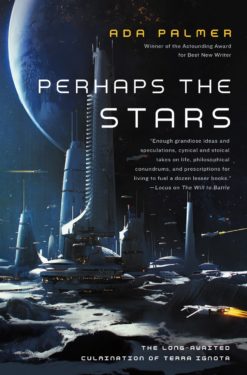 Ada Palmer’s opens in a new windowTerra Ignota series is an epic saga of political science fiction, strongly influenced by her background as a historian. As the series draws to a close with the recently released volume, opens in a new windowPerhaps the Stars, Ada has taken the time to share her thoughts on how mythos impacts the lives and thoughts of characters, but also people.
Ada Palmer’s opens in a new windowTerra Ignota series is an epic saga of political science fiction, strongly influenced by her background as a historian. As the series draws to a close with the recently released volume, opens in a new windowPerhaps the Stars, Ada has taken the time to share her thoughts on how mythos impacts the lives and thoughts of characters, but also people. opens in a new window
opens in a new window opens in a new window
opens in a new window opens in a new window
opens in a new window opens in a new window
opens in a new window

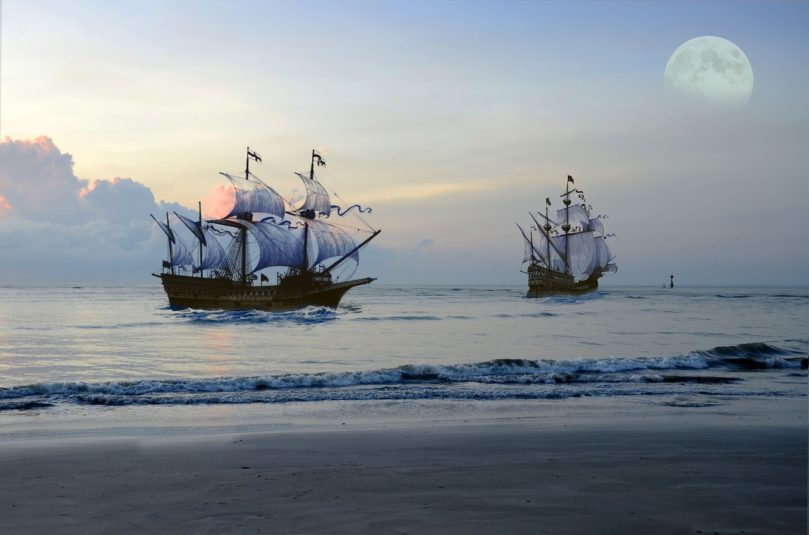

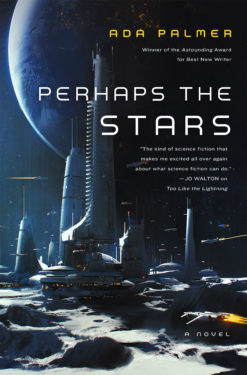
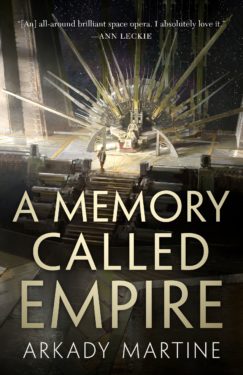 Teixcalaan series
Teixcalaan series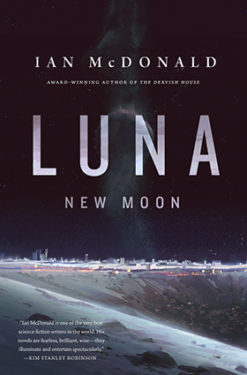 Luna series
Luna series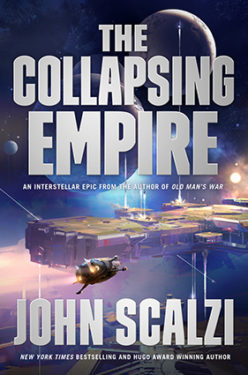
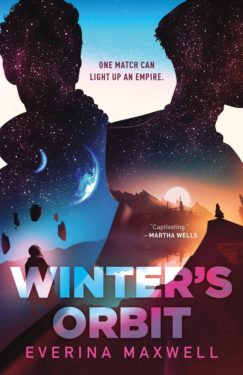 Winter’s Orbit
Winter’s Orbit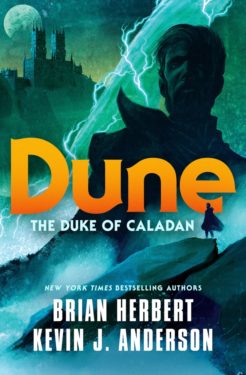 The Caladan Trilogy
The Caladan Trilogy
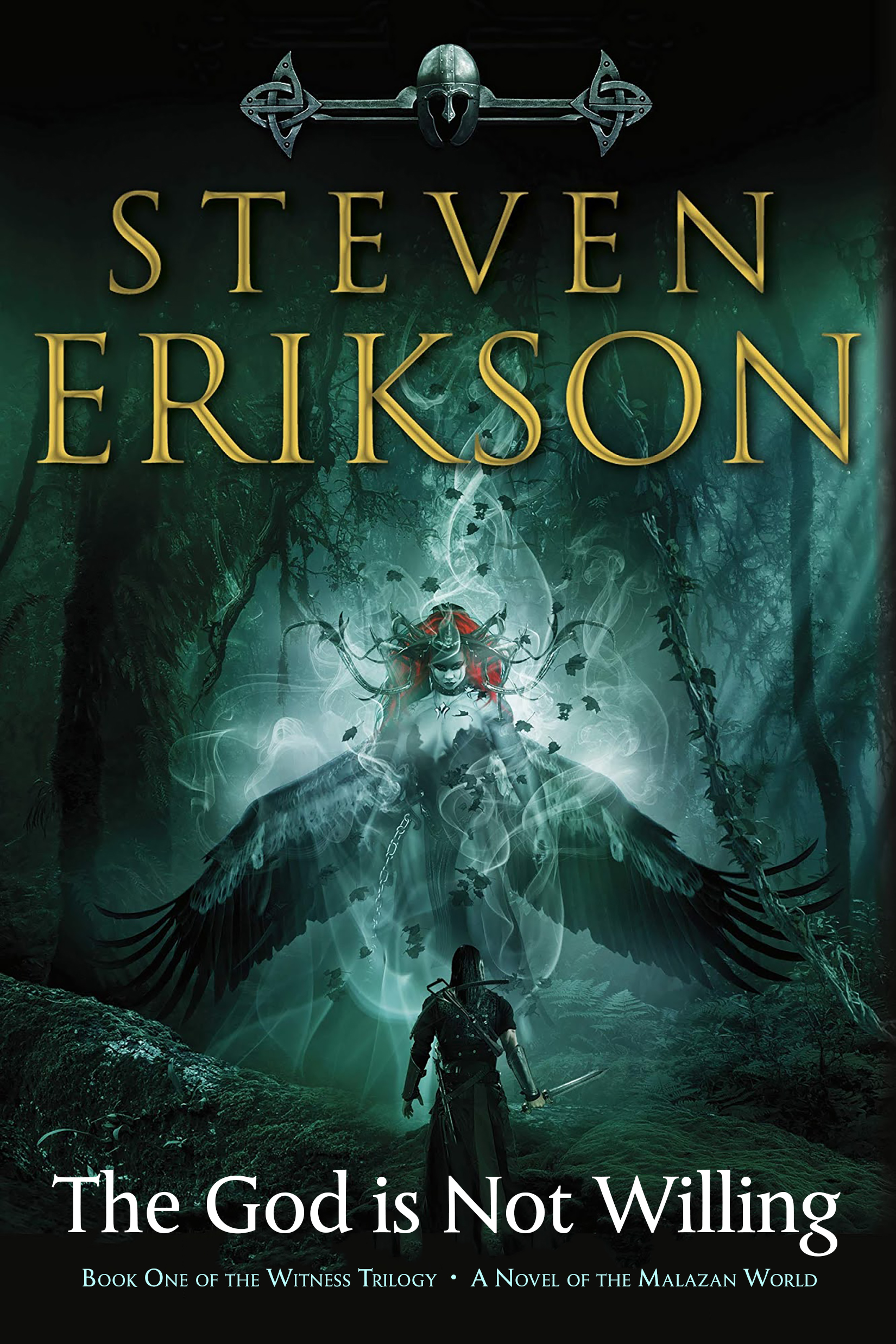

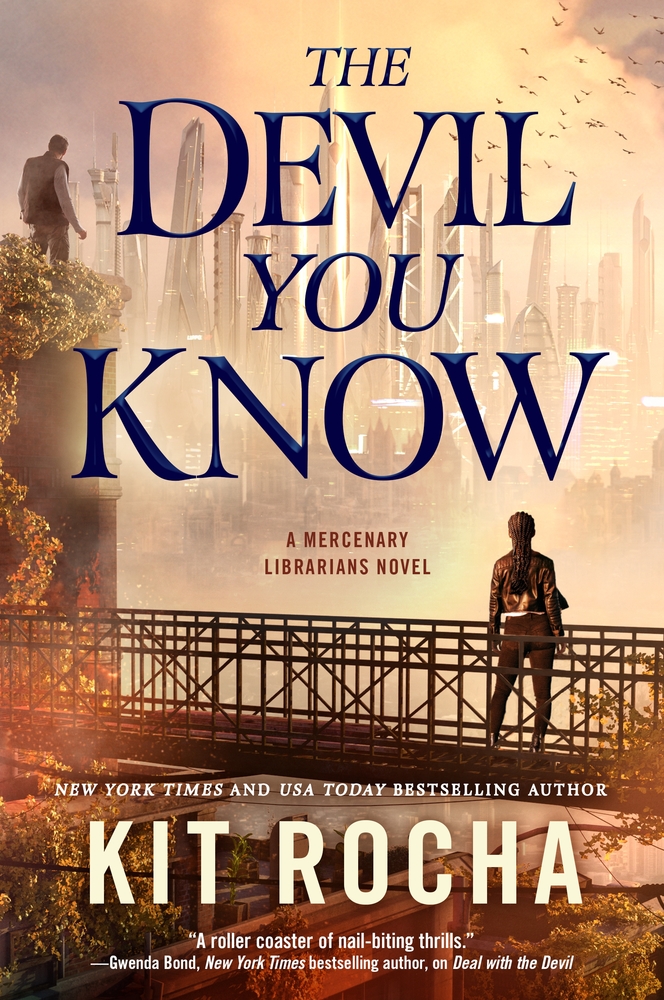

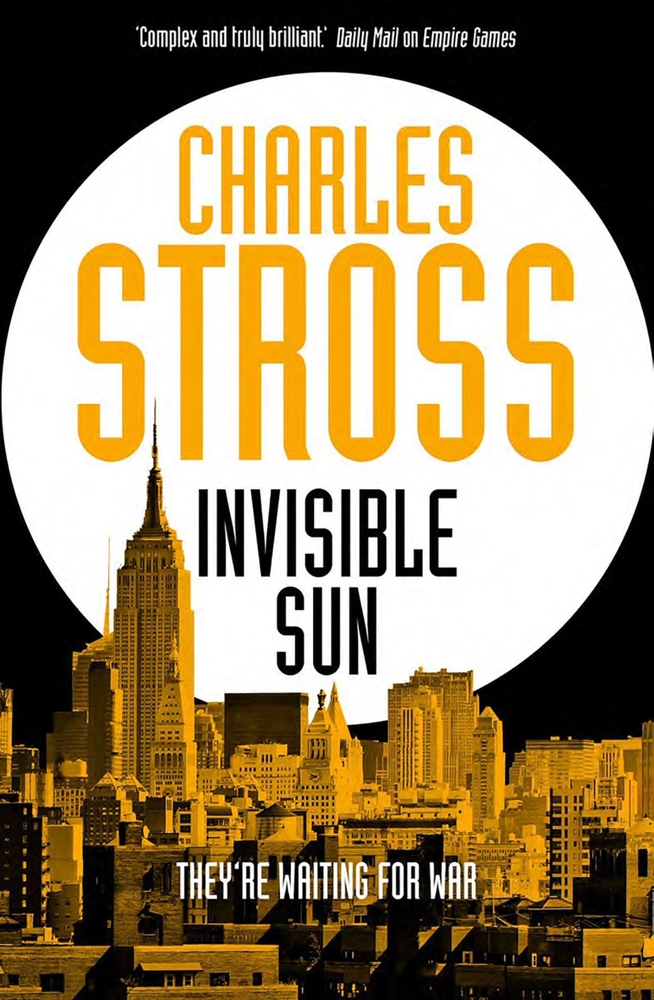



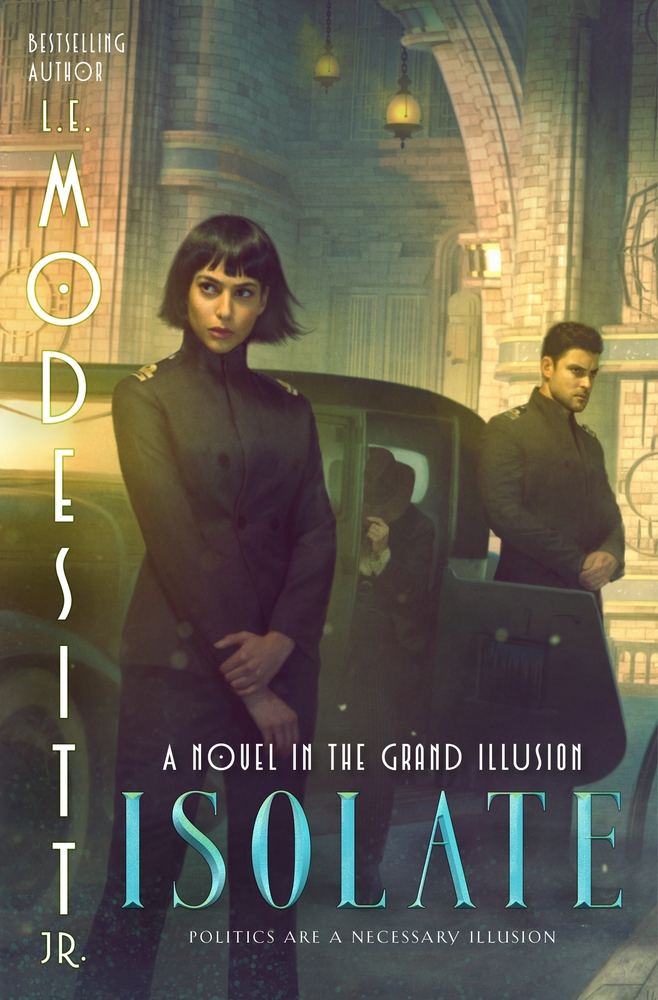


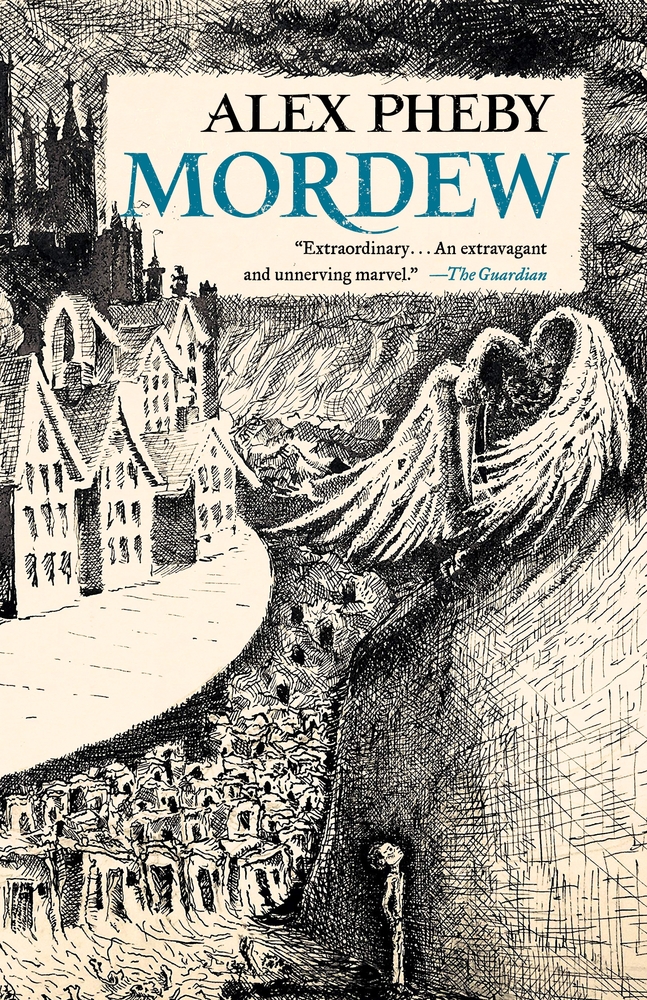 Mordew
Mordew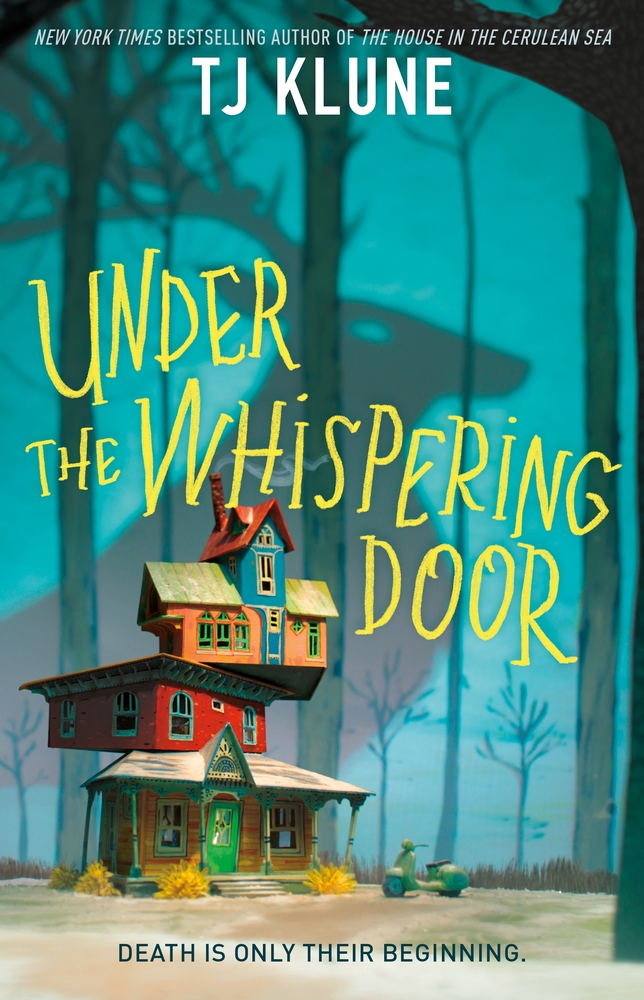 Under the Whispering Door
Under the Whispering Door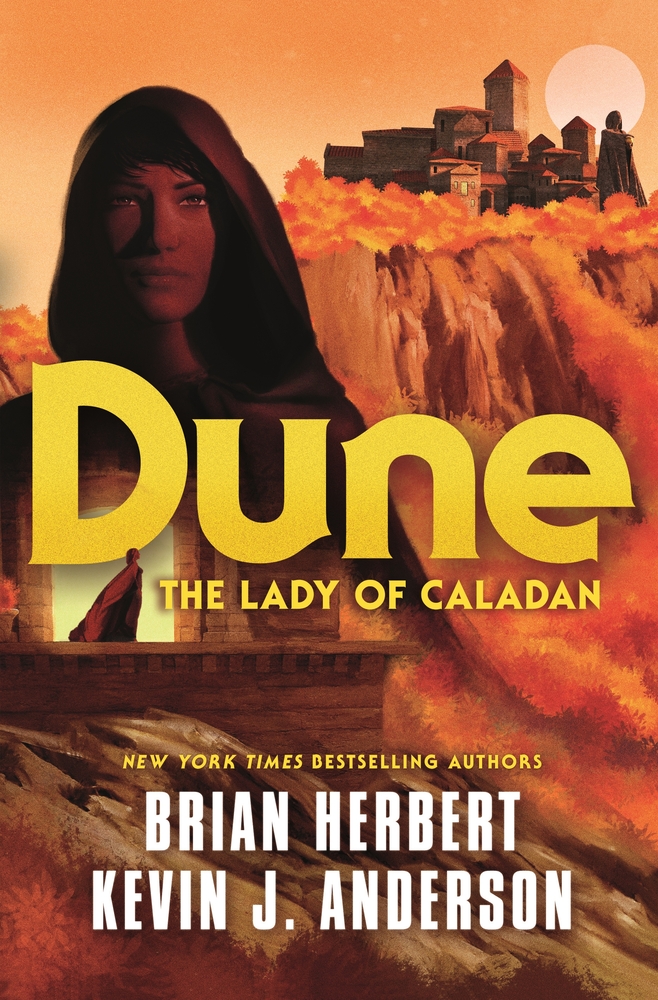 Dune: The Lady of Caladan
Dune: The Lady of Caladan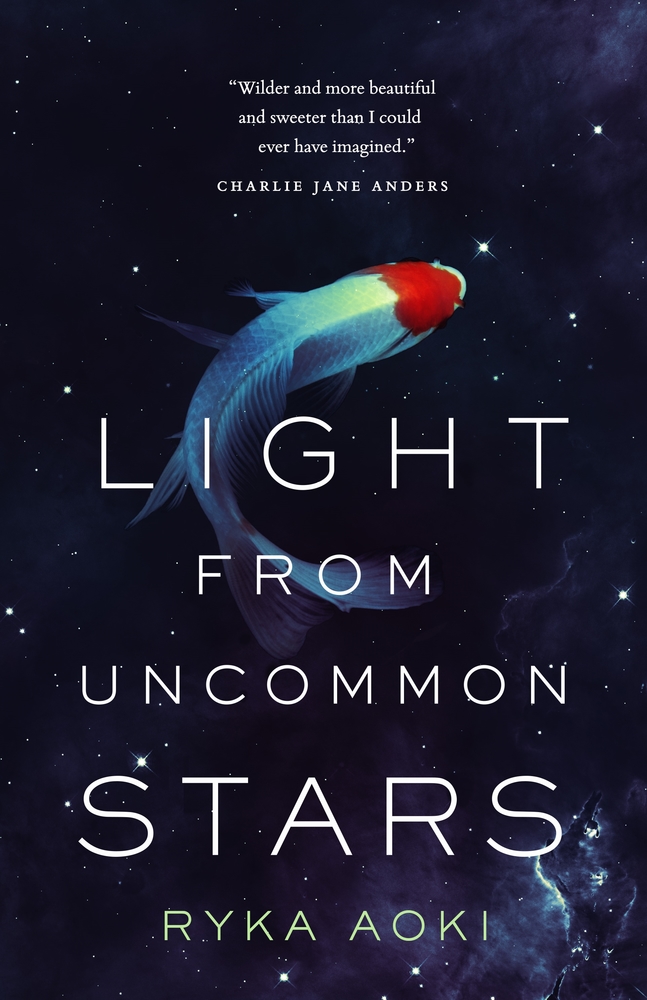
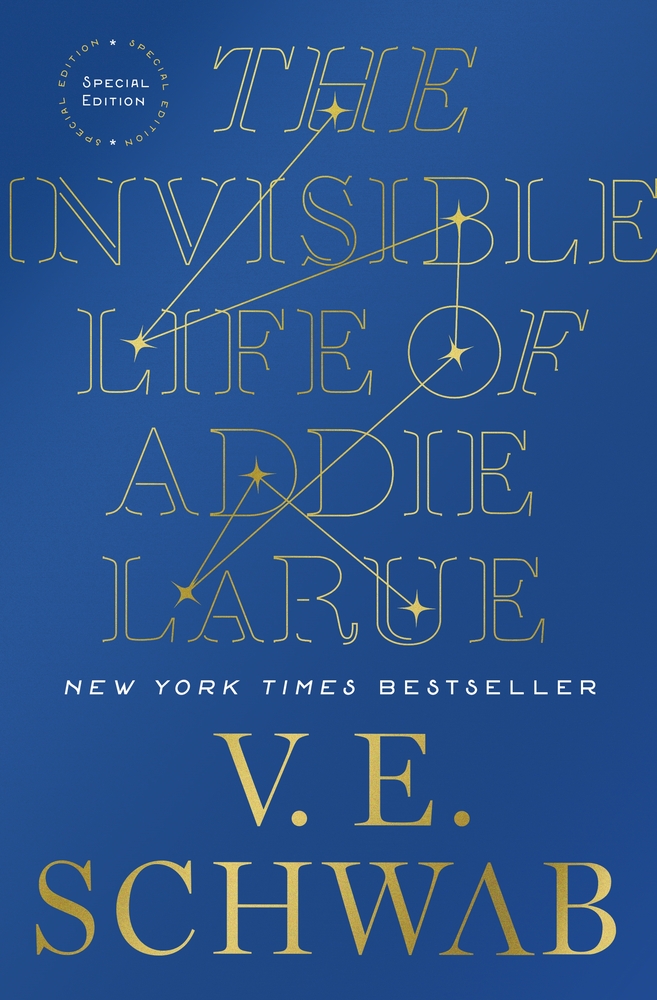 The Invisible Life of Addie LaRue, Special Edition
The Invisible Life of Addie LaRue, Special Edition The Eye of the World, TV Tie-In
The Eye of the World, TV Tie-In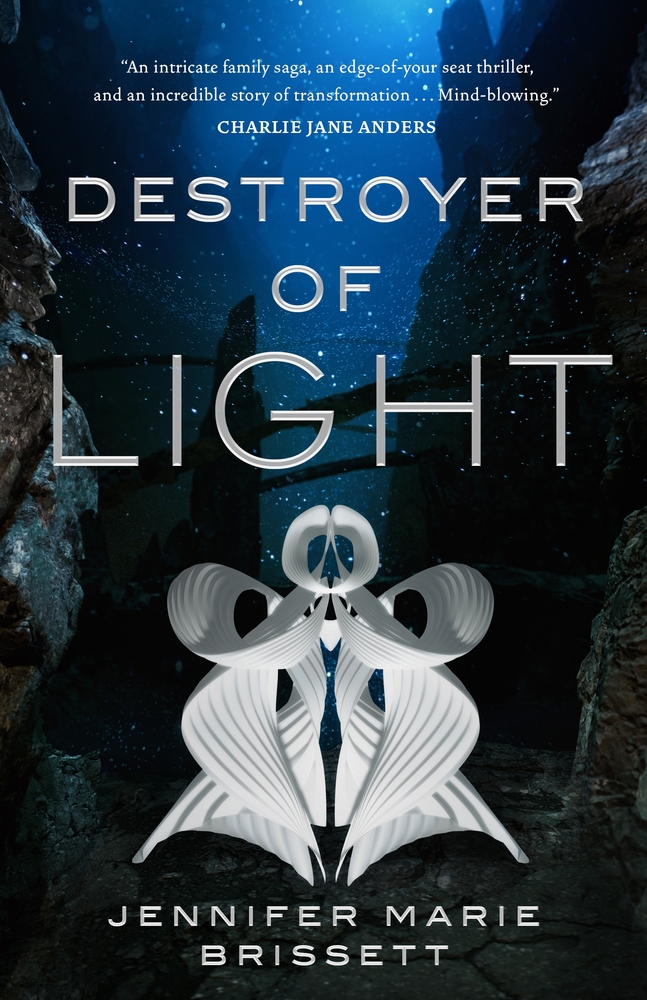 Destroyer of Light
Destroyer of Light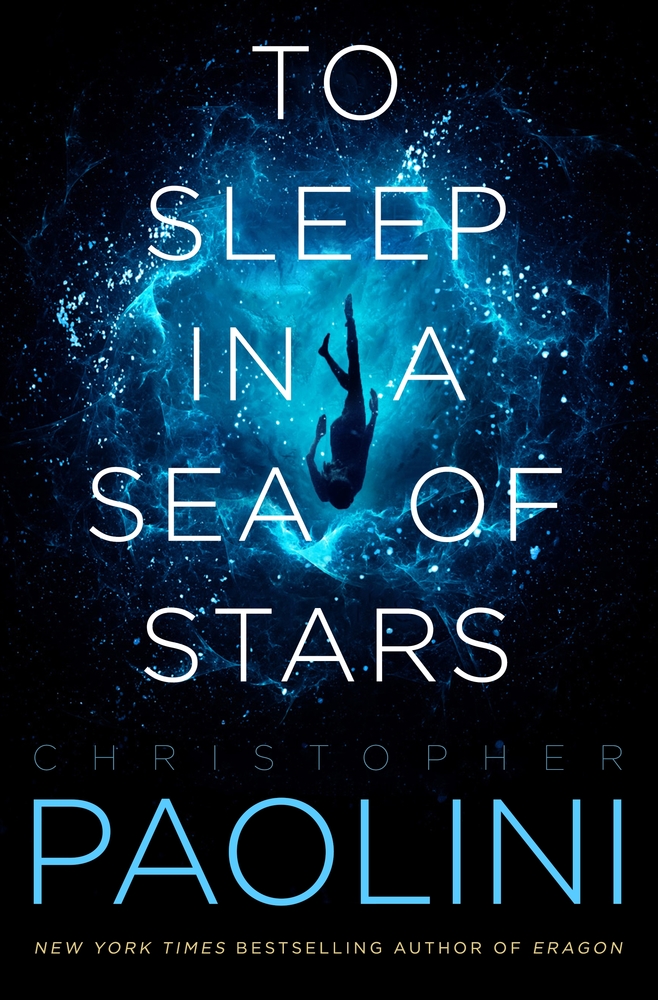
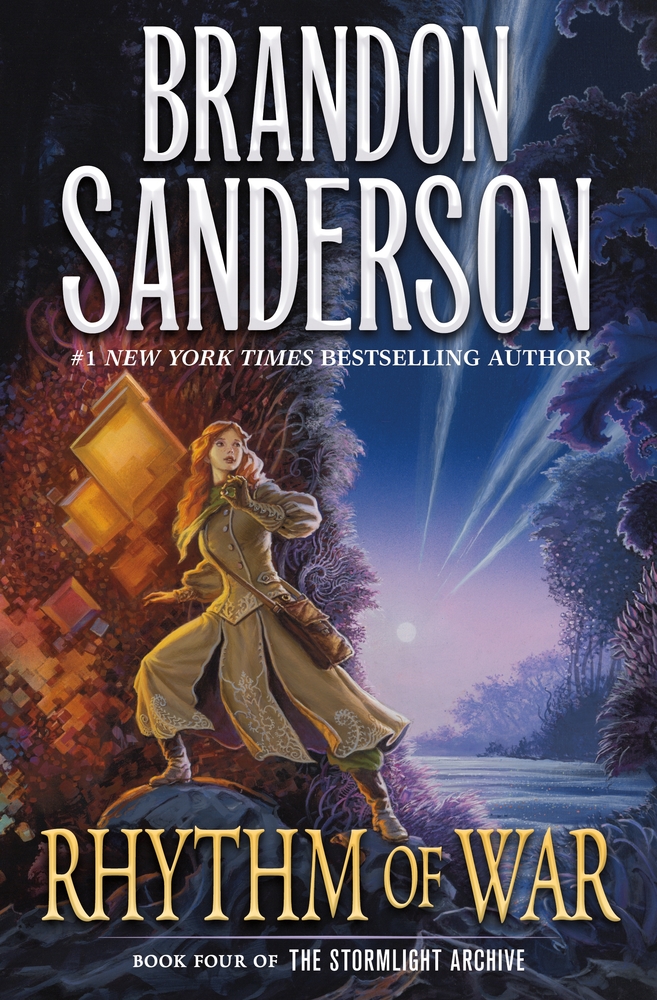 Rhythm of War
Rhythm of War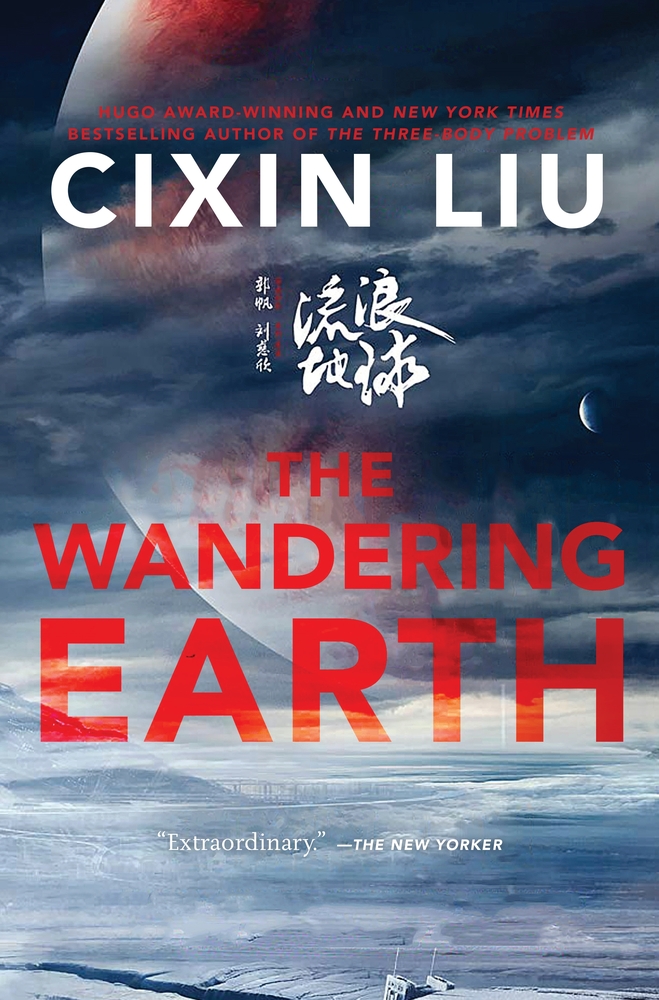

 Even Greater Mistakes
Even Greater Mistakes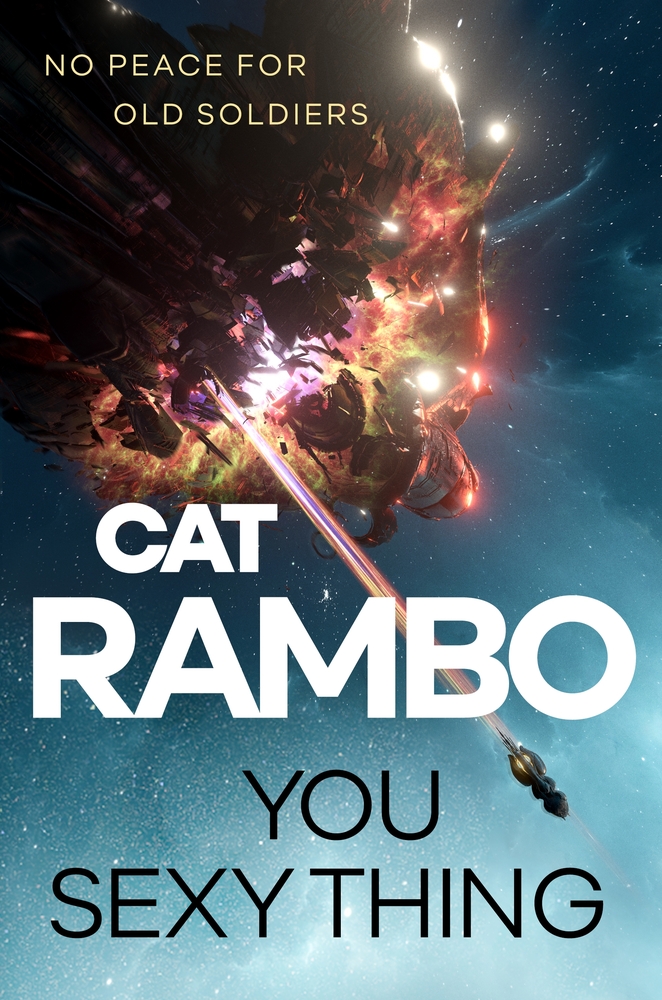
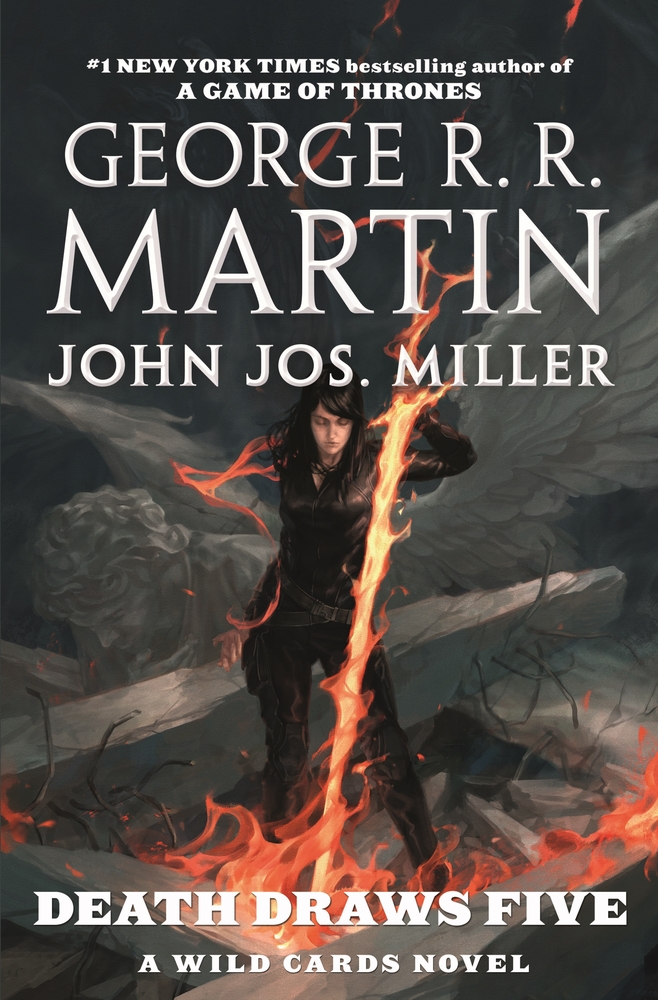
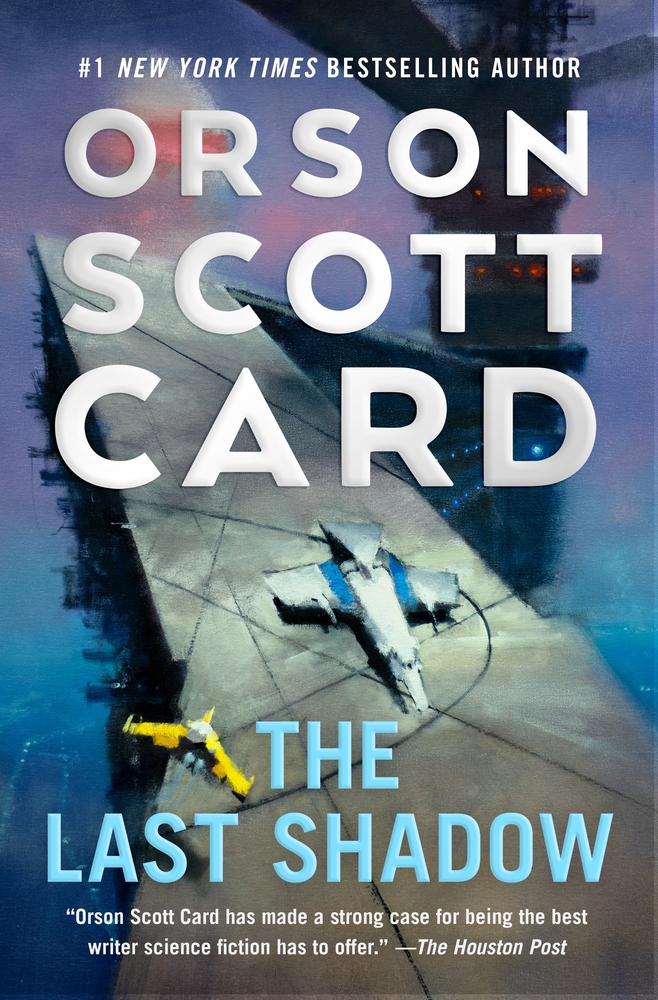 The Last Shadow
The Last Shadow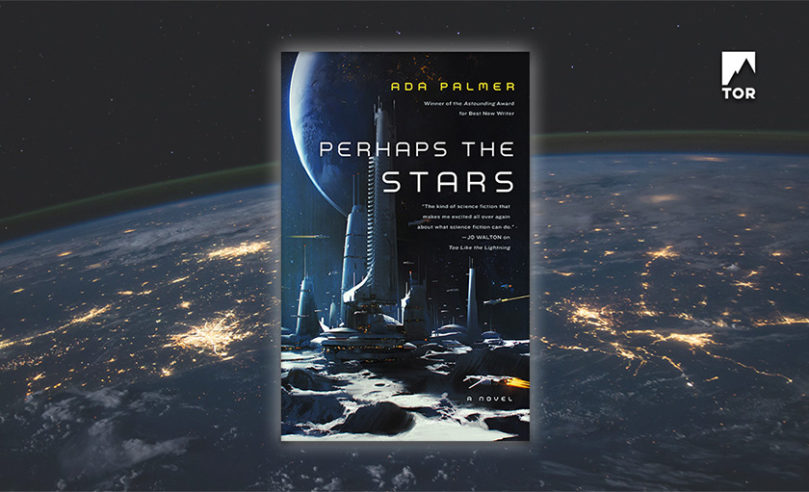

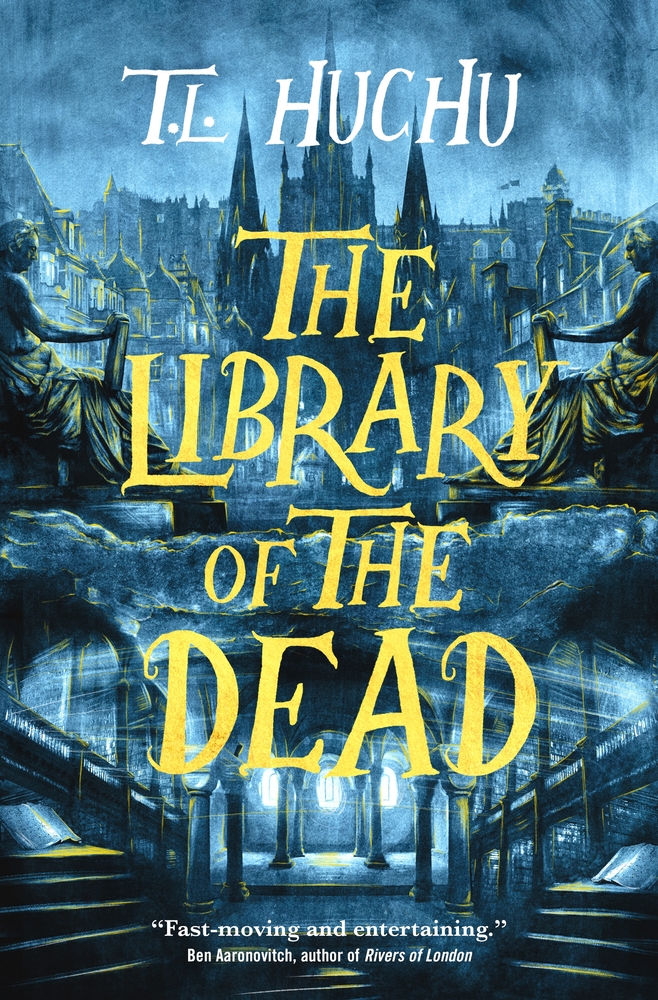 The Library of the Dead
The Library of the Dead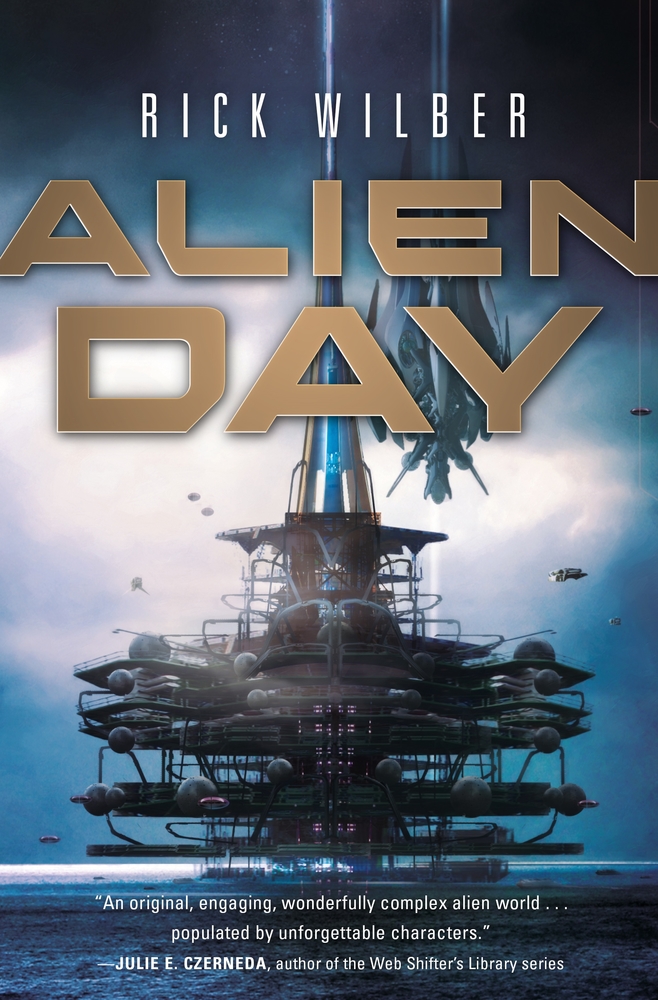 Alien Day
Alien Day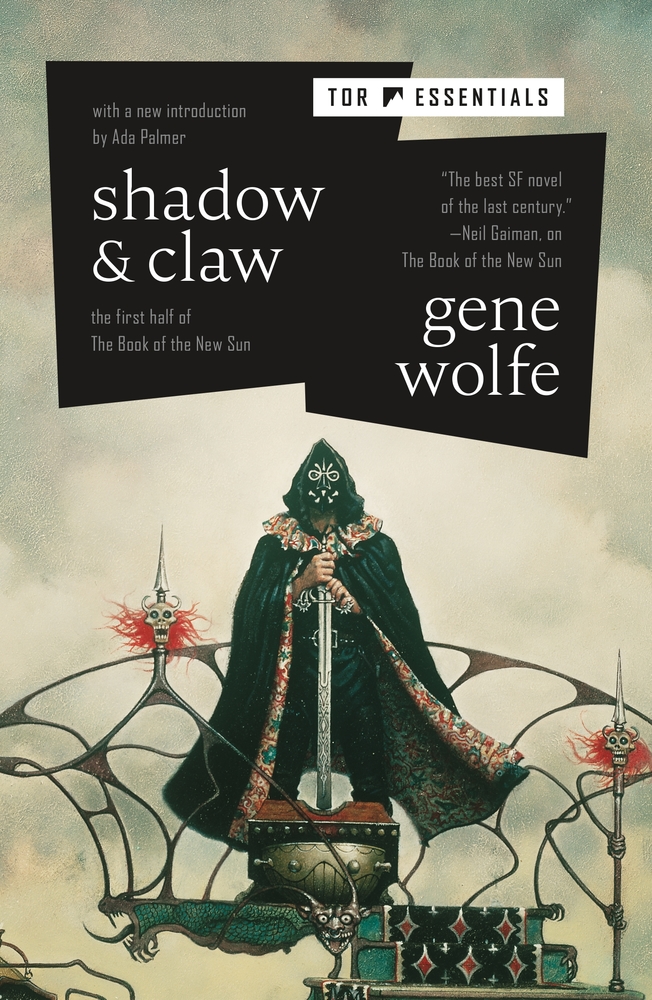 Shadow & Claw
Shadow & Claw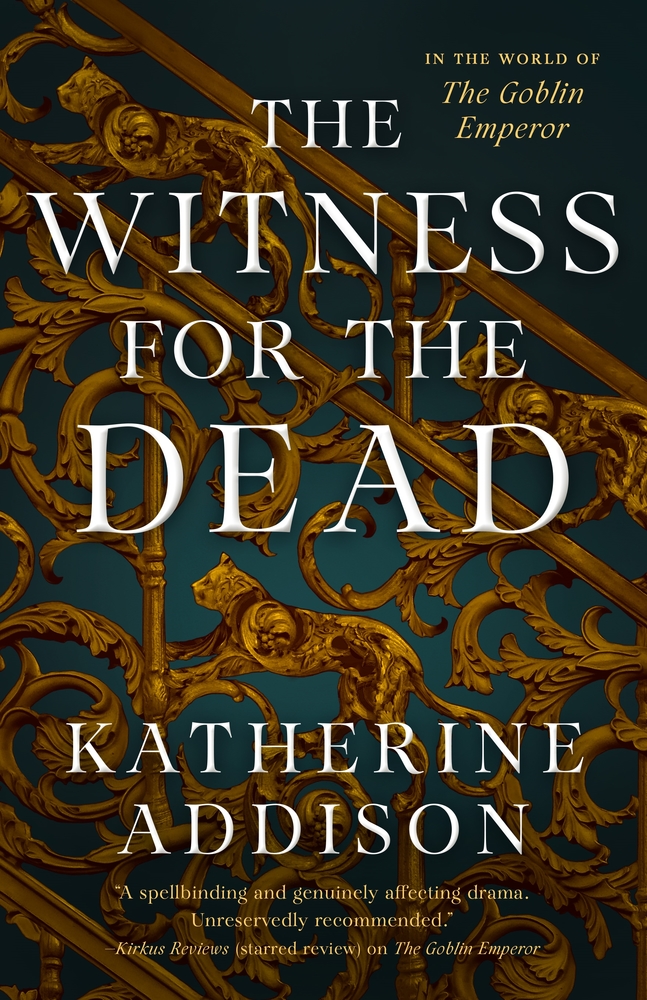 Witness for the Dead
Witness for the Dead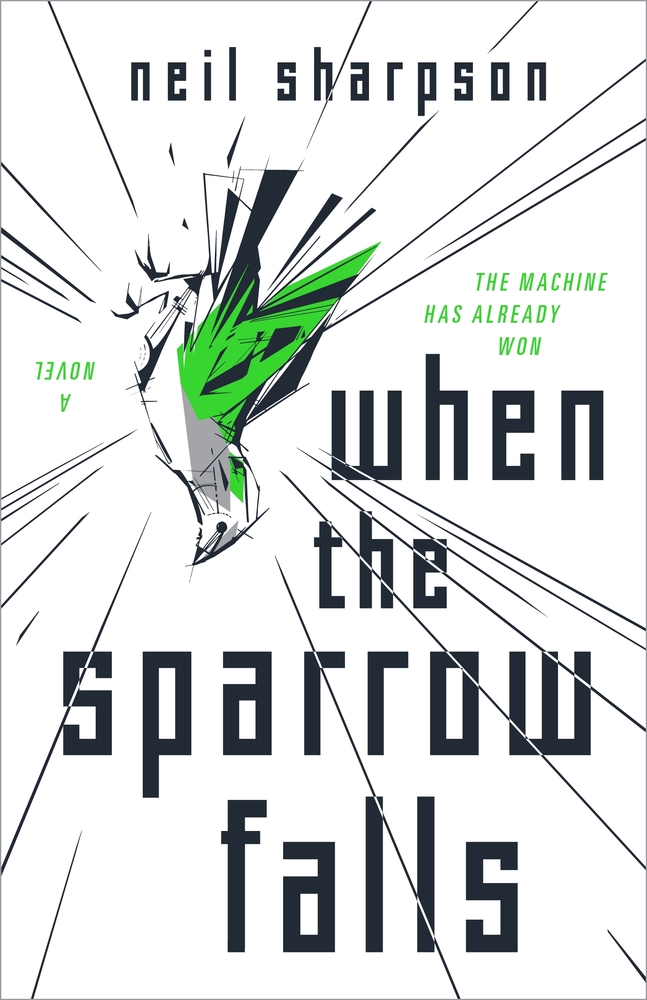 When the Sparrow Falls
When the Sparrow Falls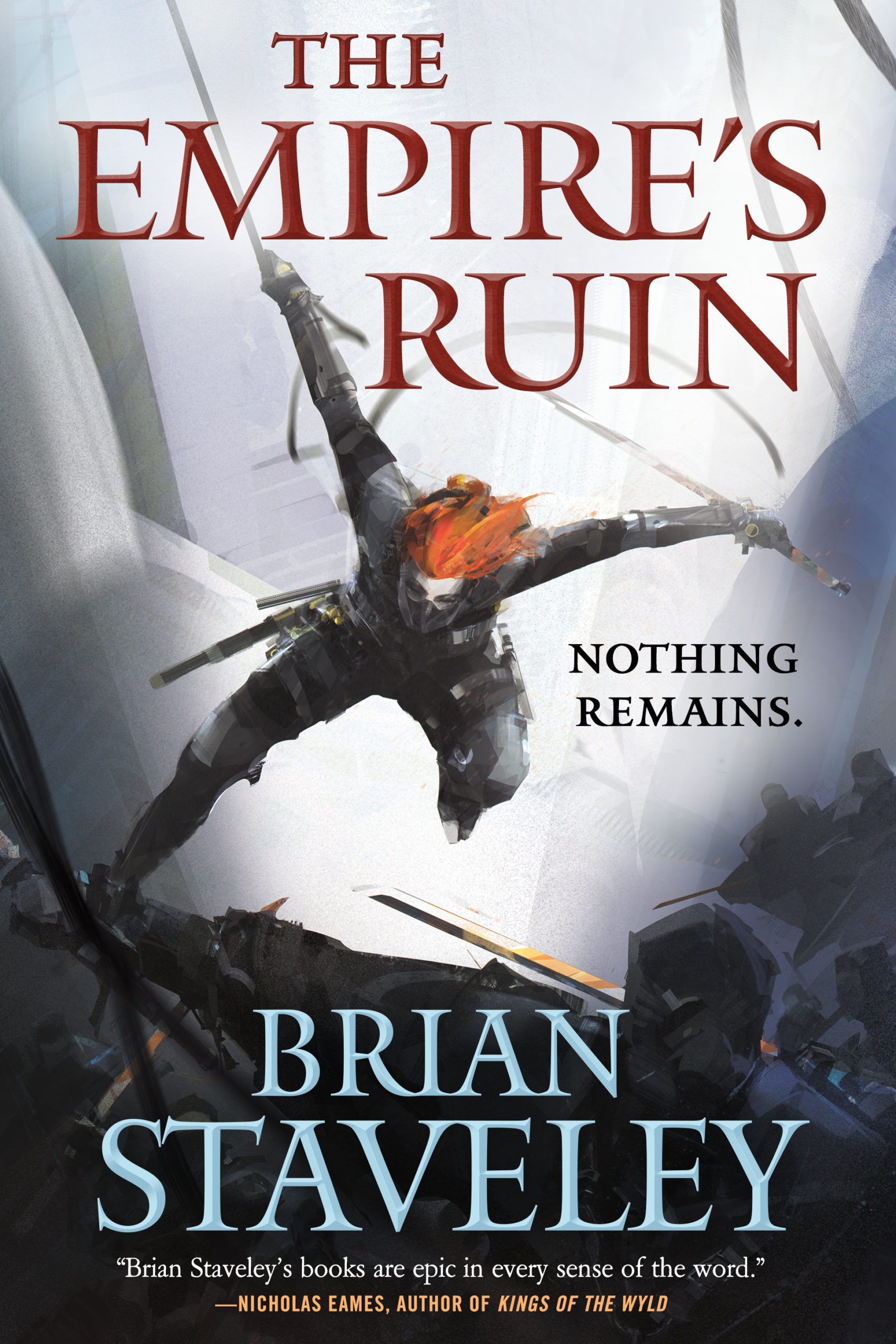 The Empire’s Ruin
The Empire’s Ruin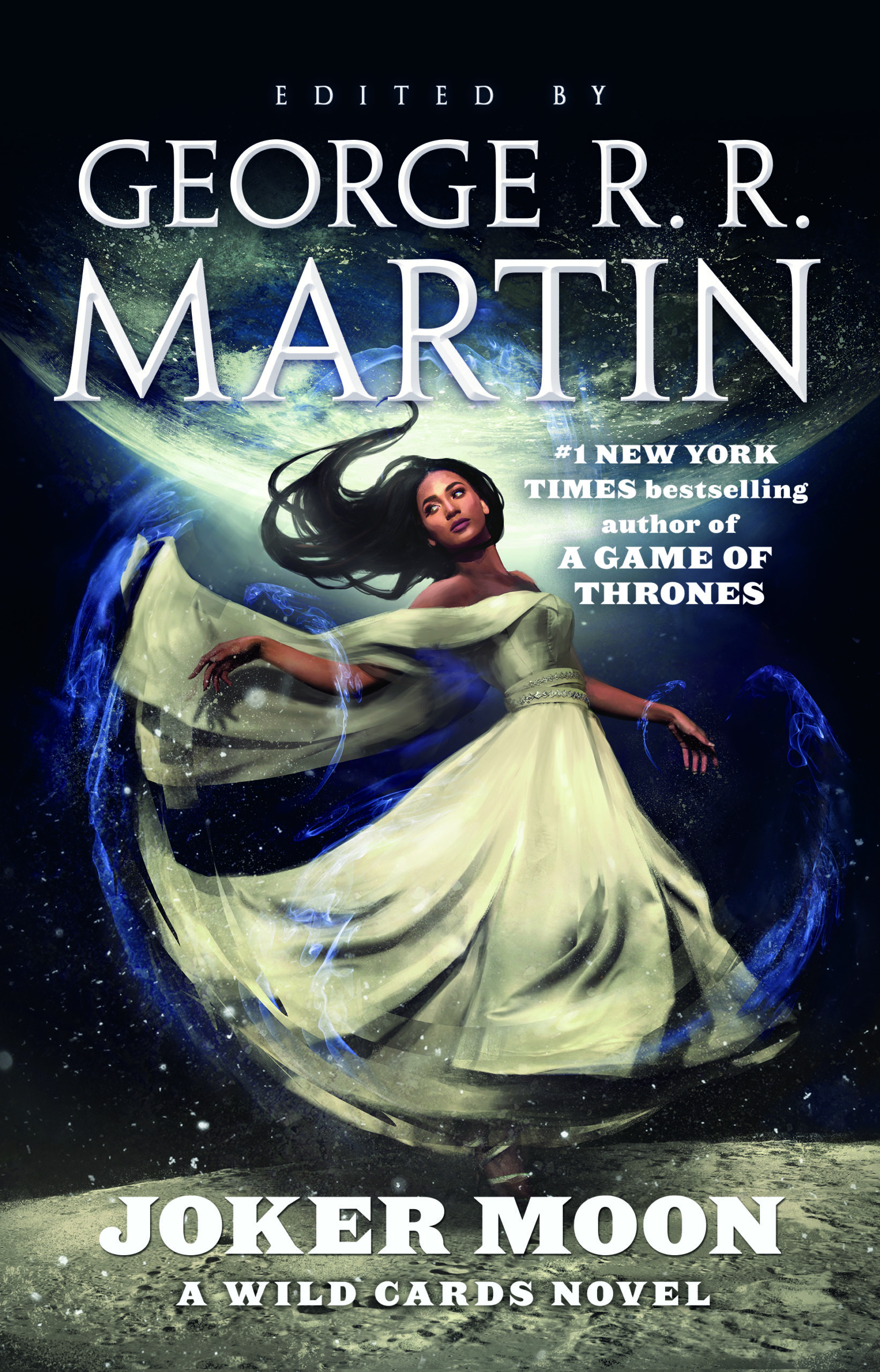 Joker Moon
Joker Moon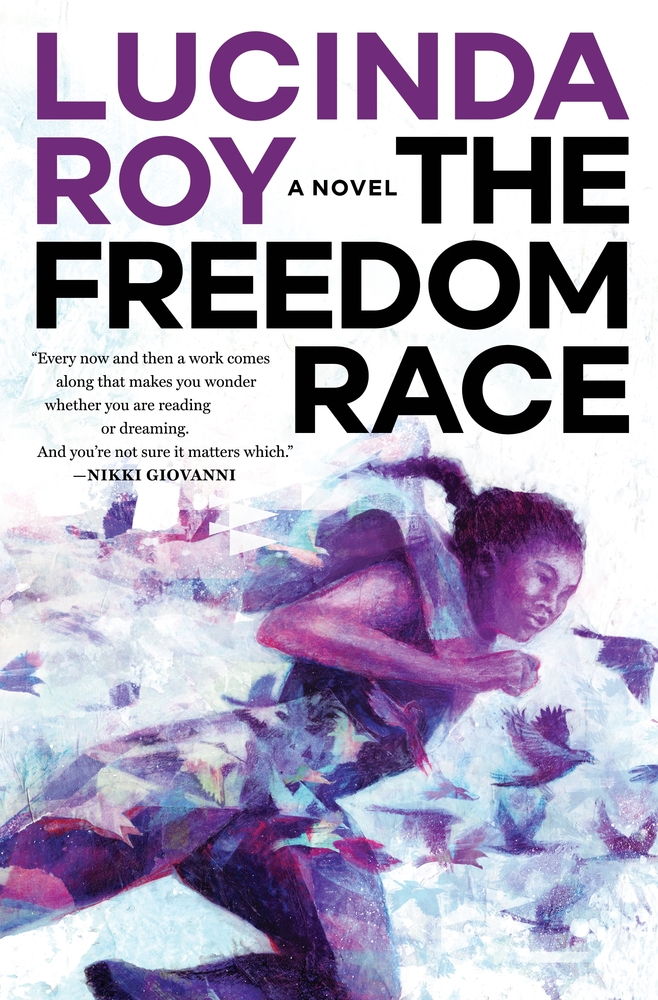 The Freedom Race
The Freedom Race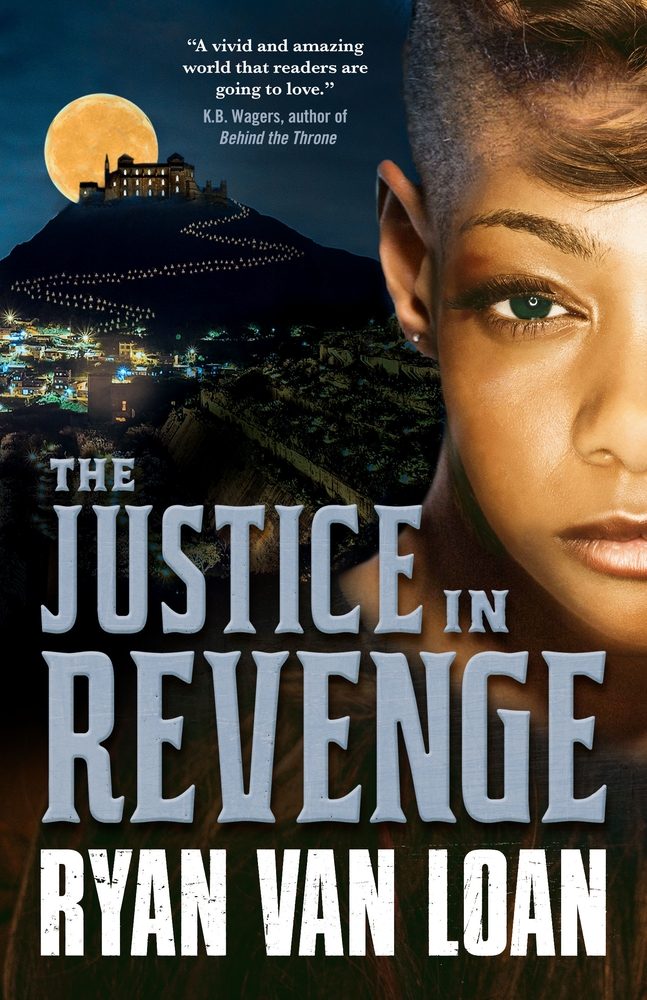 The Justice in Revenge
The Justice in Revenge She Who Became the Sun
She Who Became the Sun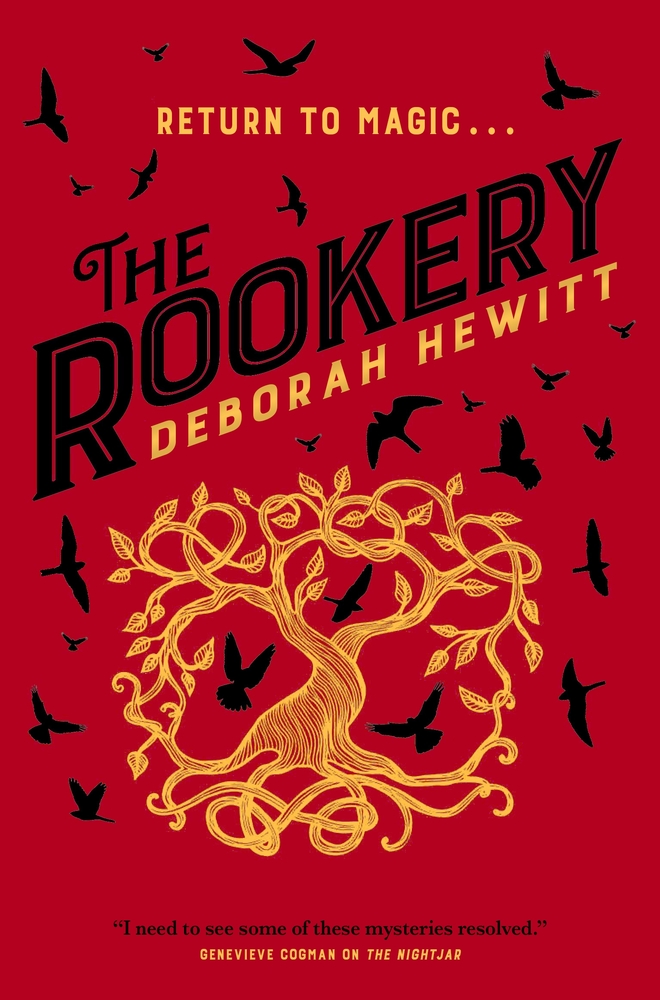 The Rookery
The Rookery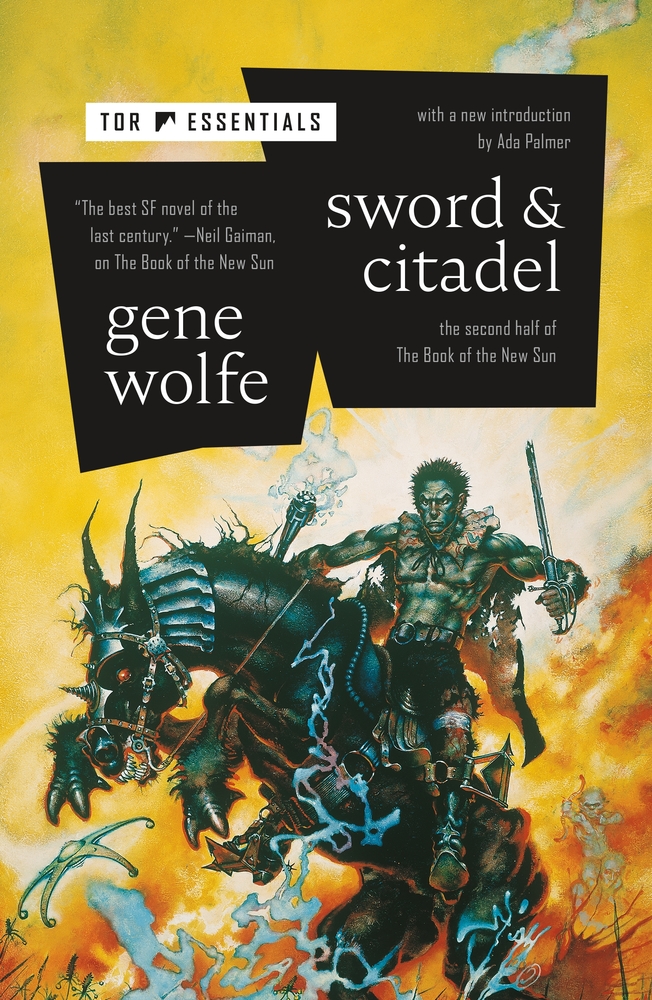
 Neptune
Neptune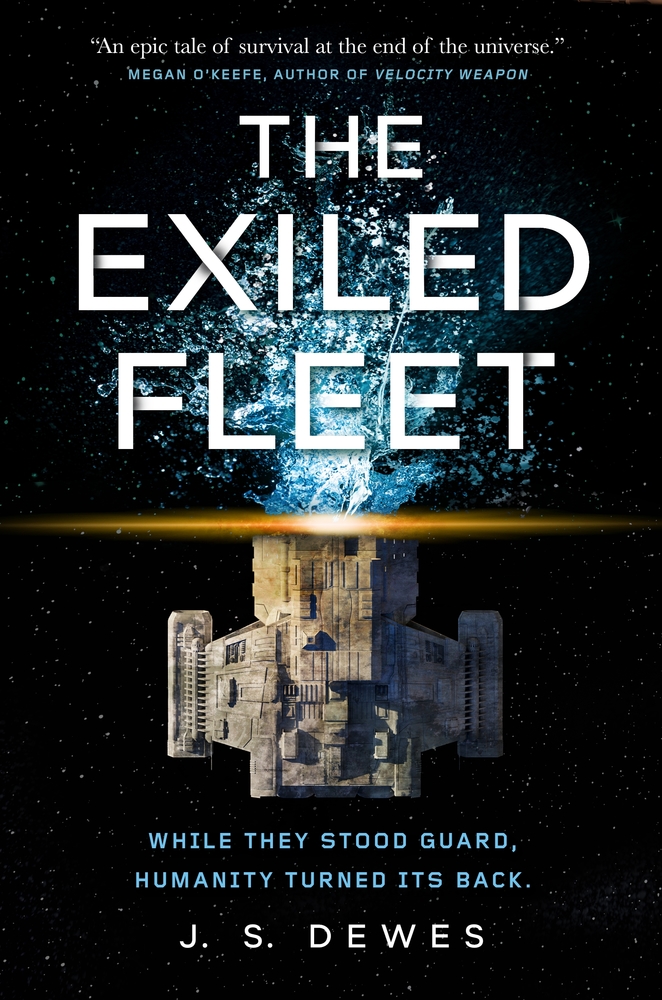 The Exiled Fleet
The Exiled Fleet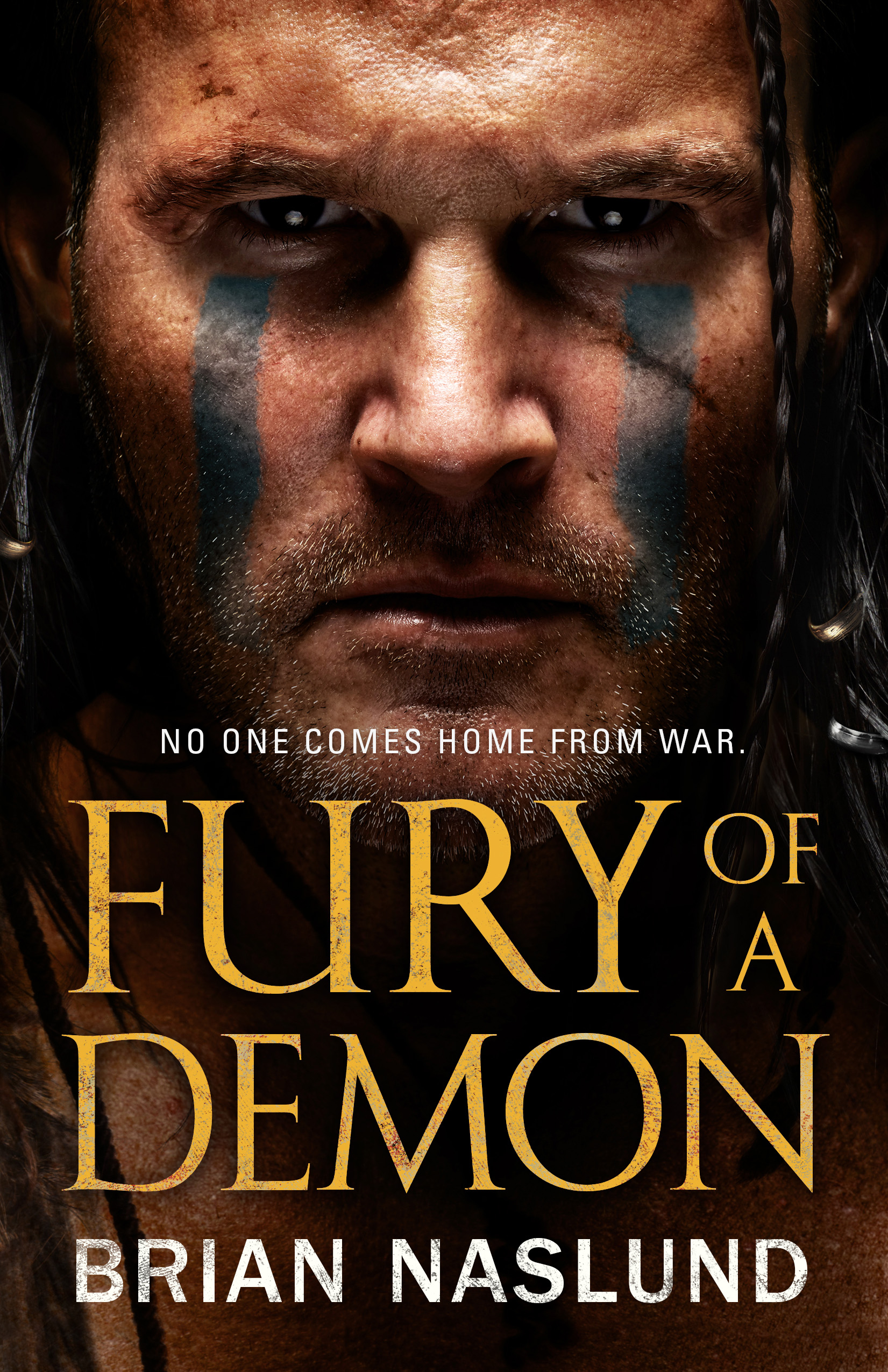 Fury of a Demon
Fury of a Demon